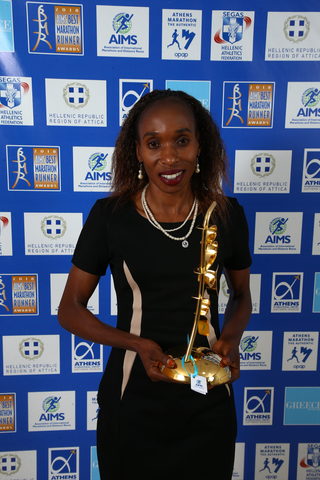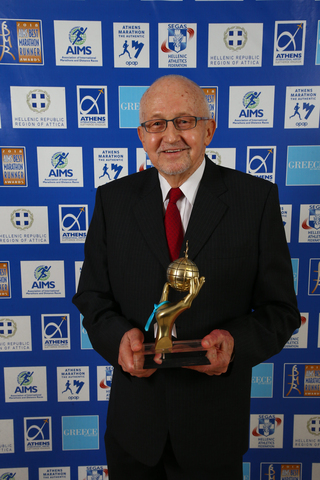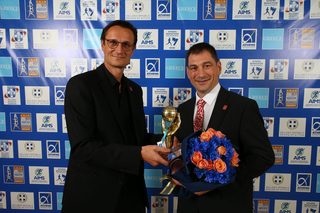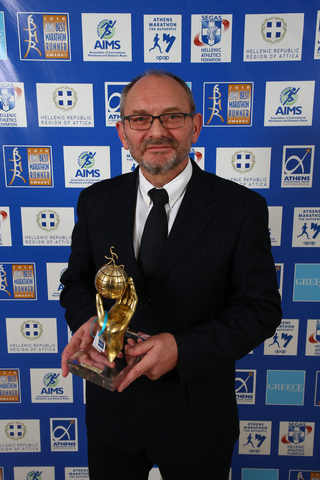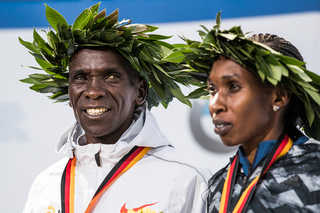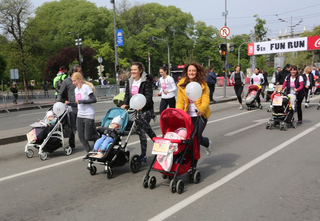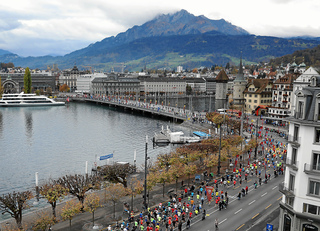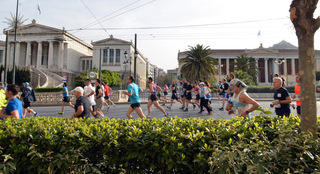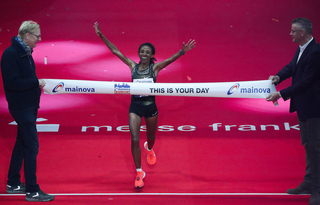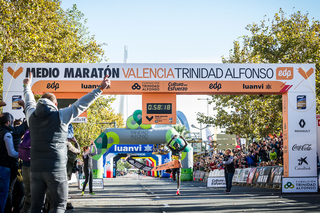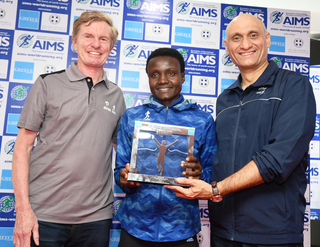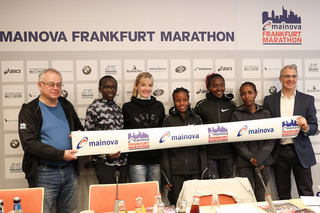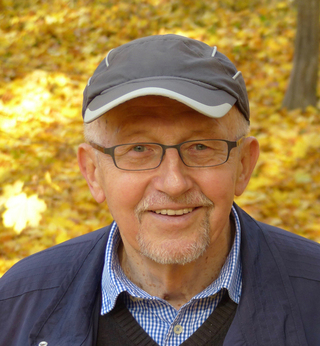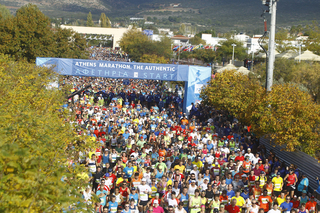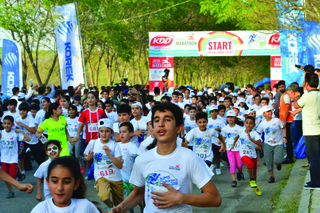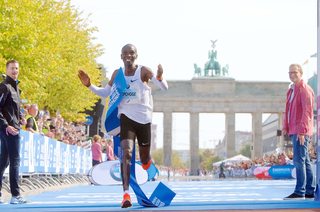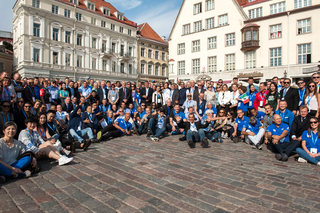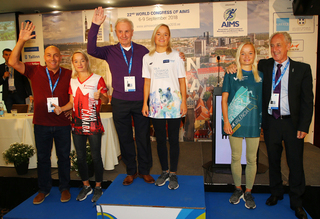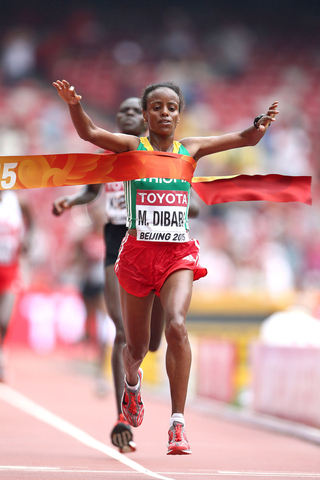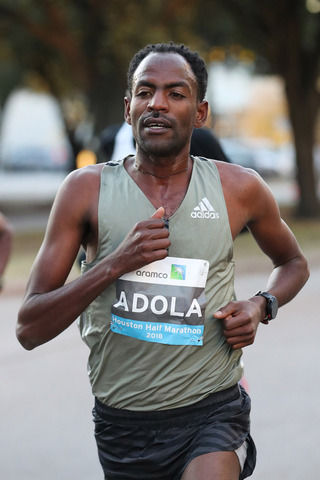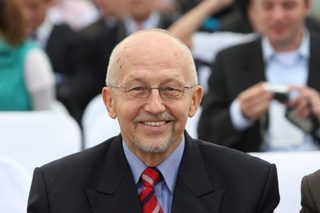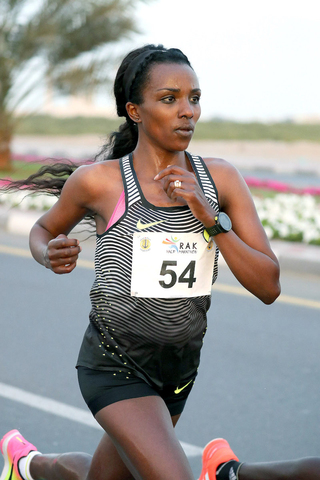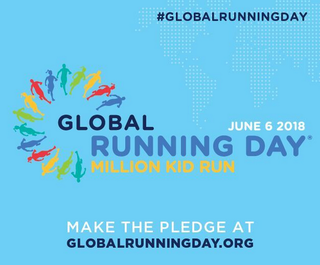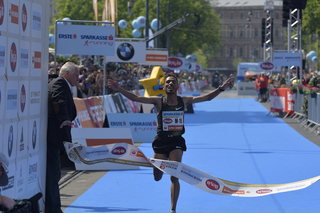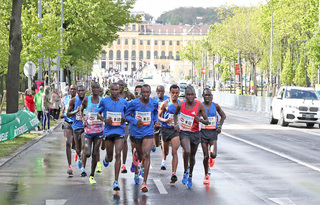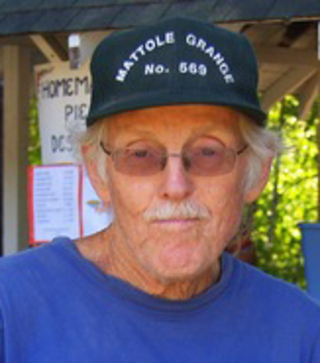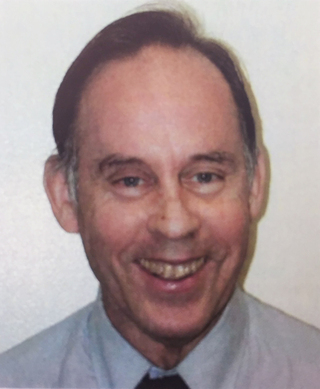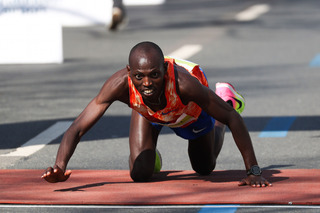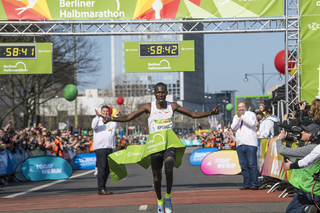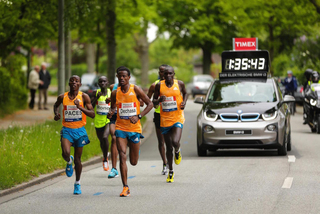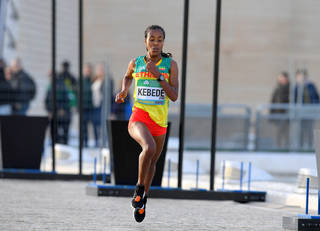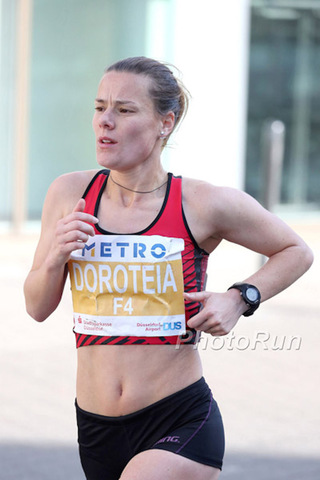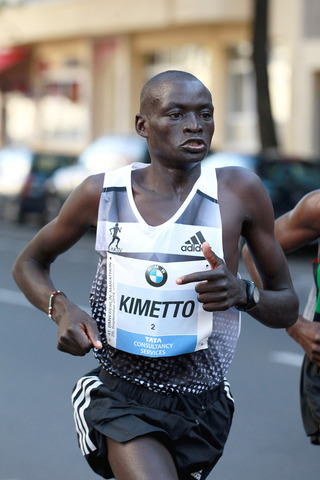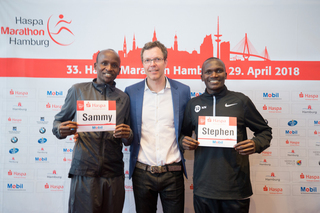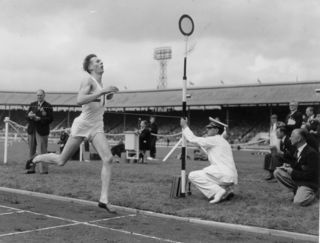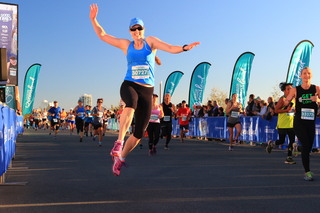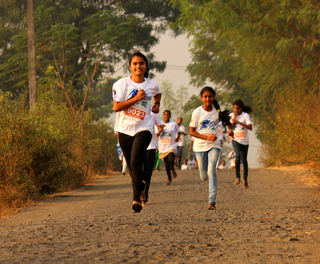 To read the latest & past editions click here
To read the latest & past editions click here
Date changes Chombeung Marathon
Race date for Chombeung Marathon (THA) changed
Chombeung Marathon date change
The Chombeung Marathon (THA) will take place on Sun 20 January 2019, not Mon 21 January 2019 as previously published.
Date changes Kigali International Peace Marathon
Race date for Kigali International Peace Marathon (RWA) changed
Kigali International Peace Marathon date change
The Kigali International Peace Marathon (RWA) will take place on Sun 16 June 2019, not Sun 19 May 2019 as previously published.
Date changes
Race date for Brasov International Marathon powered by Telekom Sport (ROU) changed
Brasov Int’l Marathon date change
The Brasov International Marathon powered by Telekom Sport (ROU) will be Sat 25 May 2019—Sun 26 May 2019, not Sat 18 May 2019—Sun 19 May 2019 as previously published.
Date changes
Race date for Knarvikmila – The Great Fjord Run (NOR) changed
Knarvikmila – The Great Fjord Run date change
The Knarvikmila – The Great Fjord Run (NOR) will take place from Fri 30 August 2019—Sun 1 September 2019, not Fri 6 September—Sun 8 September as previously published.
Date changes
Race date for Sfax Marathon Olive Trees (TUN) changed
Sfax Marathon Olive Trees date change
The Sfax Marathon Olive Trees (TUN) will take place on Sun 13 January 2019, not Sun 16 December 2018 as previously published.
Date changes Pardubice Wine Half Marathon
Race date for Pardubice Wine Half Marathon (CZE) changed
Pardubice Wine Half Marathon date change
The Pardubice Wine Half Marathon (CZE) will take place on Sat 13 April 2019, not Sun 14 April 2019 as previously published.
AIMS World Record Award
World Record Award for Netsanet Gudeta
Time of 1:06:11 in women-only half marathon beat Lornah Kiplagat’s 2007 record
AIMS is delighted to announce that the AIMS World Record Award has been presented to Ethiopia’s Netsanet Gudeta in recognition of her “women-only” Half Marathon World Record of 1:06:11 set at the IAAF/Trinidad Alfonso World Half Marathon Championships Valencia 2018 on 24 March 2018.
Netsanet beat the previous record of 1:06:25 set by Lornah Kiplagat (Kenya), a record that has stood since 2007.
Ermias Ayele, Race Director of the Great Ethiopian Run presented Netsanet with her award as part of a pre-race media event in advance of the Great Ethiopian Run on Sunday 18 November.
The time of 1:06:11 has been officially recognised as the world record by the IAAF and by AIMS. AIMS set the world record criteria for performances on the road later adopted by the IAAF and have been awarding athletes in recognition of world record breaking performances since 1985.
Netsanet Gudeta commented: “It is very special for me to receive this award in Ethiopia.” Ermias Ayele, race director of the Great Ethiopian Run, said: “We are very proud, on behalf of AIMS, to welcome Netsanet to our race and host her presentation here. Netsanet is an inspiration to women and girls in Ethiopia and the entire world.”
AIMS Marathon Symposium
AIMS Marathon Symposium 2018
Information on effects of GDPR for race organisers
The subject of the 12th AIMS Marathon Symposium was the “General Data Protection Regulation (GDPR): Implications and impact on running events”.
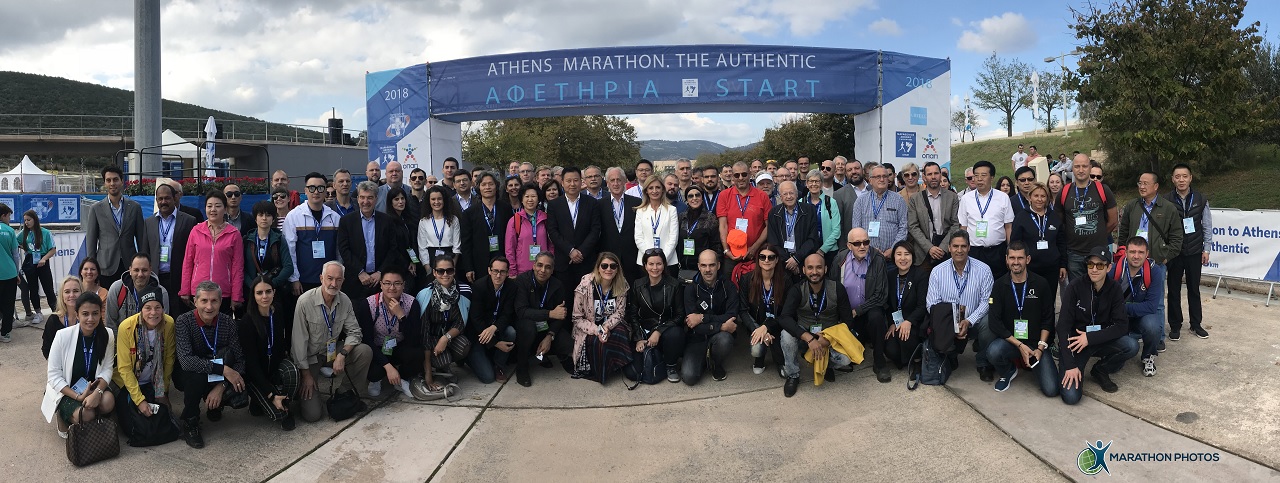
Attendees heard from:
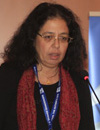 Dr. Lilian Mitrou, Expert on GDPR, Professor at the University of Aegean who said that behind the regulation is the principle that that privacy is a fundamental human right. As individuals have ‘the right to be forgotten’. We live in a world of ever-increasing cross referencing of data. The purpose of GDPR is protection of individual rights and accountability of those seeking to use personal data through greater transparency and better processes. Potential sanctions for transgressions range from a warning to a fine of up to 20 million euros or 4% of worldwide turnover. View presentation
Dr. Lilian Mitrou, Expert on GDPR, Professor at the University of Aegean who said that behind the regulation is the principle that that privacy is a fundamental human right. As individuals have ‘the right to be forgotten’. We live in a world of ever-increasing cross referencing of data. The purpose of GDPR is protection of individual rights and accountability of those seeking to use personal data through greater transparency and better processes. Potential sanctions for transgressions range from a warning to a fine of up to 20 million euros or 4% of worldwide turnover. View presentation
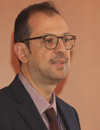 Kostas Giannopoulos, IT Governance Senior Consultant, Priority S.A., Greece noted that ‘GDPR affects countries outside Europe should they wish to offer their goods or services to citizens of the EU. This extends as far as to those using language or currency used with the European Union’. He explained the key three roles in the process: the Data Subject (the natural person); The Controller (the entity that determines the use of data); and The Processor (Processes data on behalf of the controller)’. Mr Giannopoulos then traced the procedure and processes to be considered for an organisation preparing to have their strategy and processes for managing data. View presentation
Kostas Giannopoulos, IT Governance Senior Consultant, Priority S.A., Greece noted that ‘GDPR affects countries outside Europe should they wish to offer their goods or services to citizens of the EU. This extends as far as to those using language or currency used with the European Union’. He explained the key three roles in the process: the Data Subject (the natural person); The Controller (the entity that determines the use of data); and The Processor (Processes data on behalf of the controller)’. Mr Giannopoulos then traced the procedure and processes to be considered for an organisation preparing to have their strategy and processes for managing data. View presentation
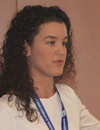 Alejandra Silvestre, Data Protection Officer, Valencia Marathon Trinidad Alfonso, Spain warned that ‘with great power comes great responsibility’ and this is true when dealing with people’s personal data. The regulation states that information must be supplied in simple clear language rather than ‘legalese’. She suggested that any organisation communicating with over 3000 people would be expected to have a nominated Data Protection Officer (DPO). Ms. Silvestre outlined the factors that needed be thought through when preparing a strategy for GDPR and the implementation of processes and practice. View presentation
Alejandra Silvestre, Data Protection Officer, Valencia Marathon Trinidad Alfonso, Spain warned that ‘with great power comes great responsibility’ and this is true when dealing with people’s personal data. The regulation states that information must be supplied in simple clear language rather than ‘legalese’. She suggested that any organisation communicating with over 3000 people would be expected to have a nominated Data Protection Officer (DPO). Ms. Silvestre outlined the factors that needed be thought through when preparing a strategy for GDPR and the implementation of processes and practice. View presentation
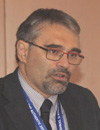 Andrea Basso, General Coordinator of the Generali Milano Marathon, Italy talked about the role of images in the context of GDPR he said: ‘images convey information and emotion often better than words. An individual’s image is considered as personal data under the GDPR legislation’. This extends even to spectators at events who may be filmed. To seek to cover this in the Generali Milan Marathon, signage is displayed around the course to inform the public of the possibility of them being filmed. Mr Basso also stressed the importance of the terms and conditions of the elite athlete agreements regarding consent to the use of their images and in what capacity. He also talked about the process of the amateur runner giving consent. Further, the importance of planning and processes required when that consent to be pictured/filmed is not given. View presentation
Andrea Basso, General Coordinator of the Generali Milano Marathon, Italy talked about the role of images in the context of GDPR he said: ‘images convey information and emotion often better than words. An individual’s image is considered as personal data under the GDPR legislation’. This extends even to spectators at events who may be filmed. To seek to cover this in the Generali Milan Marathon, signage is displayed around the course to inform the public of the possibility of them being filmed. Mr Basso also stressed the importance of the terms and conditions of the elite athlete agreements regarding consent to the use of their images and in what capacity. He also talked about the process of the amateur runner giving consent. Further, the importance of planning and processes required when that consent to be pictured/filmed is not given. View presentation
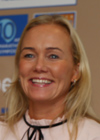 Renna Jarvält from the Tallinn Marathon gave an overview of the 22nd AIMS congress held in September and reported that the participant overall satisfaction rating was 97%. View presentation | Watch video | Watch video
Renna Jarvält from the Tallinn Marathon gave an overview of the 22nd AIMS congress held in September and reported that the participant overall satisfaction rating was 97%. View presentation | Watch video | Watch video
Note to AIMS members: GDPR has considerable complexity and legal implications. Members are encouraged to review the presentations to be posted on the members section on the AIMS website www.aims-worldrunning.org.
The Symposium was arranged in collaboration with SEGAS (the Hellenic Athletics Federation) and ‘Athens Marathon. The Authentic.’ and has been held annually since 2007.
AIMS would like to thank partners and sponsors, in particular the ‘Region of Attica’ as co-organiser of the Symposium, the ‘Greek National Tourism Organisation’ and ‘Athens International Airport’ as official sponsors of the Symposium.
This article was revised after first publication.
Date changes EVA Air Brisbane Marathon Festival
Race date for Brisbane Marathon Festival (AUS) changed
Brisbane Marathon Festival date change
The Brisbane Marathon Festival (AUS) will take place on Sun 2 June 2019, not Sun 4 August 2019 as previously published.
Best Marathon Runner Award
AIMS hosts Best Marathon Runner Award
Kenyan athletes Eliud Kipchoge and Gladys Cherono win the 2018 awards at ceremony in Athens, home of the marathon
The Association of International Marathons and Distance Races (AIMS) is delighted to announce that the Kenyan athletes Eliud Kipchoge and Gladys Cherono were tonight recognised as the male and female recipients of the AIMS Best Marathon Runner Award for 2018.
Their achievements were honoured in the birth place of the Marathon, Athens, Greece tonight (Friday 9 November 2018) at the sixth annual AIMS Best Marathon Runner (BMR) Gala.
Eliud and Gladys were chosen by the AIMS Athletes’ Nomination Committee as the outstanding candidates during the time period of 1 October 2017 to 30 September 2018.
This is the fourth consecutive year that Eliud Kipchoge (Kenya) has been recognised with the AIMS Best Marathon Runner Award. Eliud, 34, has carried his exceptional form from 2017 into 2018. Eliud is undefeated in the Marathon in 2018, winning both London and Berlin Marathons. His victory in Berlin was in a new world record of 2:01:39. This took 78 seconds off the previous record – more than any other single improvement for over 50 years.
This is the first time Gladys Cherono (Kenya) has been recognised with an AIMS award.. She won the Berlin Marathon on 16 September in a world-leading time of 2:18:11 defeating Ruti Aga (2:18:34) and Tirunesh Dibaba (2:18:55).
Eliud Kipchoge comments: “I am delighted to be the recipient of the AIMS Best Marathon Runner Award. I am very proud of my achievements this year. I would like to thank AIMS, their members and sponsors for recognising me in this way.”
Gladys Cherono comments: “I am very proud to be in Athens, the home of the Marathon, to receive this award from AIMS on behalf of their members and sponsors. It is a great honour to be recognised in this way.”
AIMS President Paco Borao comments: “Eliud and Gladys have been the outstanding candidates in 2018. It is a great honour to recognise their accomplishments on behalf of our 447 members in front of a gathering of the marathon family here in Athens, Greece.”
The event was co-organised with the Hellenic Athletics Federation (SEGAS), ‘Athens Marathon. The Authentic.’ and the Region of Attica, held under the kind sponsorship of the ‘Greek National Tourism Organisation’ and ‘Athens International Airport’.
There were several other awards presented at the Best Marathon Runner’ Awards Gala. The awards and winners are as follows:
AIMS Lifetime Achievement Award
The AIMS Lifetime Achievement Award was presented to two icons of running history, Hiroaki Chosa & Horst Milde.

Hiroaki Chosa (88) held the position of President of AIMS between 1991 and 2010, the longest time one person has held the post in the organisation’s 36-year history. He also held many of the highest positions in the Japanese Association of Athletics Federations (JAAF) including Senior Vice President (JAAF).
Horst Milde (80) founded the Berlin Marathon in 1974. He made the Berlin Marathon a founding member of AIMS in 1982 and organised the 3rd World Congress of AIMS in Berlin (1983). Horst was a member of the Board of AIMS between 1999-2010 making a globally significant contribution to the development of running.
Horst Milde comments: “It is an honour for me and my family to receive this award. Running has been my life and my family have shared that passion with me. I dedicate this award to them.”
Hiroaki Chosa comments: “It is a great honour to be recognised in this way. I feel deeply humbled to be given this award. I would like to thank everyone at AIMS for choosing to recognise me in this way. Thank you to my wife and family for their support over so many years. Thank you also to all the athletes and men and women managers, staff and volunteers behind the scenes who make running events possible for others to enjoy.”
AIMS President Paco Borao comments: “It is clear that AIMS would not be the world leading running organisation it is today without the hard work, dedication and talent of Hiroaki Chosa and Horst Milde. They are both very well deserving of the AIMS Lifetime Achievement Award.”
AIMS Green Award
The SwissCityMarathon-Lucerne offer participants the chance to donate towards CO2 compensation upon registering for the race, supporting the Swiss project of forest management operated by the company Oberallmeindkorporation (OAK).
Reto Schorno, CEO of the SwissCity Marathon comments: “It is a great honour to be given this award. We are very proud of our environmental initiatives such as our runners receiving free public transportation and so many of our runners supporting the fostering of forestry. We would like to thank AIMS and its members for presenting us with this award.”
Paco Borao, President of AIMS commented: “Everyone at AIMS is delighted to welcome the SwissCityMarathon-Lucerne to Athens to receive their award. They are on track to succeed in their ambition of hosting a sustainable race for years to come.”
AIMS Social Award
The Belgrade Marathon developed the program “Heroes of the Belgrade Marathon” which has in the last four years recognised dozens of people, many living with disabilities, who overcame challenges to finish the Belgrade Marathon.
In addition, the Belgrade Marathon support a program called “Mama Fit” which aims to promote education for women about the importance of safe physical activity during and after pregnancy. In 2018, more than 500 pregnant women, new mothers and their families took part in the Belgrade Marathon fun run.
Dejan Nikolic, Race Director of the Belgrade Marathon comments: “The Belgrade Marathon has put a strong focus on social initiatives for many years, especially our work with runners living with disabilities. Our programme Mama Fit has been really well received and shows how sport is a great medium for important social and health messages.”
Paco Borao, President of AIMS, comments: “Races have a great opportunity to bring their entire communities together through participation in our sport. The Belgrade Marathon has been very successful in doing this in recent years with its innovative “Heroes of the Belgrade Marathon” and “Mama Fit” programs and I wish them every success in the future.”
This article was revised after first publication.
Best Marathon Runner Award
Eliud Kipchoge and Gladys Cherono honoured as ‘Best Marathon Runners’ of 2018
Outstanding achievements of Kenyan athletes
The AIMS Athletes’ Nomination Committee decided that for this year (1 October 2017 to 30 September 2018) Eliud Kipchoge and Gladys Cherono were the outstanding male and female candidates for the AIMS ‘Best Marathon Runner’ Awards based upon their performances.
Eliud Kipchoge (KEN) is undefeated in the Marathon in 2018, winning both London and Berlin Marathons. His victory in Berlin was in a new world record of 2:01:39. This took 78 seconds off the previous record – more than any other single improvement for over 50 years.
Gladys Cherono (KEN) won the Berlin Marathon on 16 September in a world-leading time of 2:18:11 defeating Ruti Aga (2:18:34) and Tirunesh Dibaba (2:18:55).
The achievements of the two Kenyan athletes will receive global recognition during the AIMS ‘Best Marathon Runner’ Awards Gala in Athens, Greece on the night of Friday 9 November 2018. The event is co-organised with the Hellenic Athletics Federation (SEGAS), ‘Athens Marathon. The Authentic.’ and the Region of Attica, held under the kind sponsorship of the ‘Greek National Tourism Organisation’ and ‘Athens International Airport’.
This article was revised after first publication.
AIMS news
Hiroaki Chosa and Horst Milde share 2018 Lifetime Achievement Award
Joint honour for AIMS legends
AIMS jointly honours two legends in the sport of distance running, Horst Milde & Hiroaki Chosa, with the annual Lifetime Achievement Award. Both have dedicated their lives to distance running and helped to open up the sport for people to enjoy all around the world.
Horst Milde will receive the AIMS Lifetime Achievement Award at the sixth annual AIMS ‘Best Marathon Runner’ Awards Gala to be held in the birthplace of the Marathon, Athens, on Friday 9 November while Hiroaki Chosa will receive the Award on a later occasion.

Hiroaki Chosa was President of AIMS between 1994 and 2010, the Association’s longest-serving president. He dedicated his life to helping people in Japan and internationally. An excellent athletics coach in his youth, he went on to be a director of global sport touching the lives of millions around the world.
He held many of the highest positions in the Japanese Association of Athletic Federations (JAAF) including Managing Director. He was Race Director of the famous Fukuoka Marathon and a member of the IAAF Cross Country and Road Running Committee and later the Road Running Commission. His diplomacy and the respect he is held in around the world forged meaningful and respectful connections between AIMS and the IAAF.
Mr. Chosa established links between AIMS and key global sponsors in Japan which helped AIMS to grow into the organisation it is today. He built a relationship between Unicef and AIMS. At the turn of the millennium AIMS ran a series of events in countries around the world each starting as the new millennium dawned. These events raised millions of Japanese Yen and American Dollars for good causes. The architect of the AIMS Millennium race series, touching and improving the lives of children around the world was Hiroaki Chosa. There can be few people in the history of world sport that can have touched more lives and made them better than Hiroaki Chosa.

Horst Milde founded the Berlin Marathon in 1974. Under his direction the race grew from a few hundred runners to more than 40,000. It became a sporting and cultural event of global significance. Horst made the Berlin Marathon a founding member of AIMS in 1982 and organised the 3rd World Congress of AIMS in Berlin in 1983. He was a member of the AIMS Board between 1999–2010.
In 1994 Horst founded the AIMS Marathon Museum of Running in Berlin’s historic Olympia Park, known as the Marathoneum. The museum documents the development of running and the marathon worldwide. Today it holds more than 100,000 artefacts. Horst has been the leading influence in ensuring the memory of the marathon and the sport of running is captured for all time within the AIMS Marathoneum.
Horst was a trailblazer and under his leadership the Berlin Marathon was the first in Europe to introduce chip timing in 1990. A clever and witty man (a baker by trade) and a great innovator, in 1996 Horst famously saved the day by baking a perfect replica of the sponsor’s shoe and presenting it in front of the world media to Uta Pippig when her world athlete of the year award arrived in Berlin broken.
Horst has passed the baton on to his son Mark Milde who is the Race Director of the Berlin Marathon.
AIMS President Paco Borao said: “AIMS would not be the world leading running organisation it is today without the hard work, dedication and talent of Hiroaki Chosa and Horst Milde. They are both very well deserving of the AIMS Lifetime Achievement Award. They are an inspiration to us all. I hope they will feel the warmth of gratitude of millions around the world whose lives they have touched and improved when they receive their awards.”
This article was revised after first publication.
AIMS Social Award
Belgrade Marathon wins 2018 AIMS Social Award
Praise for race’s integration initiatives
The Belgrade Marathon will receive the AIMS Social Award at the sixth annual AIMS ‘Best Marathon Runner’ (BMR) Awards Gala to be held in the birthplace of the Marathon, Athens, on 9 November 2018.
The award was made in recognition of their work with runners living with disabilities and for other social initiatives in pursuit of the United Nations Millennium Development Goals.
Over the last four years the “Heroes of the Belgrade Marathon” programme has spotlighted dozens of people, many living with disabilities, who overcame challenges to finish the Belgrade Marathon. The purpose of this initiative is to support and encourage those living with disabilities to participate equally in sporting events. There is an annual award ceremony held in Belgrade City Hall.
Belgrade Marathon also supports the “Mama Fit” initiative which promotes the importance of safe physical activity for women during and after pregnancy. In 2018 more than 500 pregnant women, new mothers and their families took part in the Belgrade Marathon fun run.
Race Director Dejan Nikolic said: “The Belgrade Marathon has emphasised social engagement for many years, especially in our work with runners living with disabilities. Our programme Mama Fit has shown how sport is a powerful medium for promoting important social and health messages.”
The two other shortlisted races were the Dhiraagu Maldives Road Race and the Košice Peace Marathon in Slovakia.
AIMS Green Award SwissCityMarathon – Lucerne
Swiss City Marathon Lucerne takes 2018 Green Award
Sustainability efforts recognised
The Swiss City Marathon held in Lucerne, Switzerland will receive the 2018 AIMS Green Award at the 6th Best Marathon Runner Gala to be held in Athens, the birthplace of the Marathon, on Friday 9 November.
The award recognises excellence in environmental practice with candidates judged on the impact the race has had on promoting environmentally friendly practices in marathon events, how volunteers contribute to the success of the project and the ability for the race to educate younger generations about the benefits of sport and environmental protection. The two other shortlisted races were the Marine Corps Marathon (USA) and the Silesia Marathon (Poland).
The SwissCityMarathon-Lucerne aims to organise a sustainable event based on social, economic and environmental considerations. The race supports charity projects through UNICEF and thanks to the cooperation with the Max Havelaar Foundation products bearing the Fairtrade label are used. Local suppliers and companies are used whenever possible and the local running community is maintained year-round.
A comprehensive environmental policy and plan are in place and a dedicated person is responsible to ensure that environmental measures are incorporated throughout the race. Emissions such as waste, noise, water and air pollution are minimised. 75% of the CO₂ emissions caused during the SwissCityMarathon originate from the travel of the participants. Thanks to the SwissRunners ticket, traveling from all over Switzerland to the event and back is free for participants.
The fire hydrants in town are supplied with clean drinking water and these are used for the hydration points serving the runners.. The SwissCityMarathon-Lucerne offer participants the chance to donate towards CO₂ compensation upon registering for the race, supporting the Swiss project of forest management operated by the company “Oberallmeindkorporation”.
Reto Schorno, CEO of the SwissCity Marathon said “We are very proud of our environmental initiatives. Our thanks go to AIMS and its members for presenting us with this award.”
Race news
“Authentic” marathon attracts record numbers
A Greek success story with worldwide effect
Only one marathon has unique status in terms of sport history, despite the ever-growing number of city races. It is not New York, London, Berlin or Tokyo but Athens.
When the “Athens Marathon. The Authentic” gets underway on November 11, the runners will be returning to the very origin of the event. This is where the history of the marathon race began with the legend of the Greek messenger, soldier and runner who is thought to have run from Marathon to Athens in 490 BCE to bring news of the victory in battle over the Persians. According to legend the messenger, once in Athens, collapsed and died.
The drama of this story was the basis for the marathon race to be born at the first modern Olympic Games which took place in Athens in 1896. The race over 42.195km has had a decisive influence on the development of running throughout the world with many millions annually running in more than 1,000 marathons. In summary, the legendary run of 490 BC became an Olympic sporting event in 1896 and 122 years later has been developed into an enormous sport and social movement.
It all began in the country that gave birth to the Olympic Games and a place called Marathon, a small town on the coast of Attica and about 40km from Athens. Today the “Athens Marathon. The Authentic” is organised on this historic Olympic course leading from Marathon to Athens. It is officially measured and the race features the highest international standards concerning every aspect of the organisation.
More and more runners realise that the “Athens Marathon. The Authentic” is a race which every distance runner should experience at least once. The numbers of participants have been growing for years for the race which will have its 36th edition on November 11. In 2007 just 5,000 took part in the Athens Marathon which starts, as did the 1896 Olympic race, in Marathon and finishes in the old Panathenaic Stadium of Athens. That was a participant record at the time. Since then the race has acquired a completely different dimension: for the first time in the history of the Athens Marathon, entries for the marathon this year were all taken two months before the start. A record number of 18,750 runners have entered the marathon. Taking into account shorter distance events taking place in conjunction, there will be a grand total of 55,000 running a week on Sunday during the “Authentic Marathon”, as it is often called by the locals. This makes the event one of the biggest running events in the world. It is also one of the most international races worldwide since half of the runners participating in the marathon race come from outside Greece. Athletes from more than 105 countries will compete on the tough original course next week.
In a time of crisis for the Greek economy, the “Athens Marathon. The Authentic” is a true success story which has not only captured the imagination of runners but also increasingly spectators as well as bringing major financial benefit to Athens and the region. This year the organisers of the race, the Hellenic Athletics Federation (SEGAS), have been awarded the gold medal in the “Tourism Awards 2018” as well as the gold medal in the “Events Awards 2018“. Each year foreign participants in the “Athens Marathon. The Authentic” are worth over 30 million Euro to the Greek economy.
Date changes Marabana Marathon & Half & 10km
Race date for Marabana Marathon & Half (CUB) changed
Marabana Marathon & Half date change
The Marabana Marathon & Half (CUB) will be Sun 10 November 2019—Mon 11 November 2019, not Sun 17 November 2019—Sun 17 November 2019 as previously published.
Date changes Islandsbanki Reykjavik Marathon
Race date for Islandsbanki Reykjavik Marathon (ISL) changed
Islandsbanki Reykjavik Marathon date change
The Islandsbanki Reykjavik Marathon (ISL) will take place on Sat 24 August 2019, not Sun 25 August 2019 as previously published.
Race news Mainova Frankfurt Marathon
Meskerem Assefa breaks women’s course record in windy Frankfurt
Kelkile Gezahegn triumphs in men’s race
Runner-up last year, this time the number one: the Ethiopian Kelkile Gezahegn won the 37th edition of the Mainova Frankfurt Marathon in cool and at times extremely windy conditions in 2:06:37.
After a thrilling duel he broke away from Martin Kosgey of Kenya who finished in 2:06:41. Fellow Kenyan Alex Kibet finished third on his marathon debut in 2:07:09.
The top result of the day was achieved by the women’s winner as the 33-year-old Ethiopian Meskerem Assefa broke the course record with 2:20:36. That was 25 seconds faster than her compatriot Meselech Melkamu had run here in 2012.
In a women’s field which produced high-quality performances in depth, Haftamnesh Tesfay of Ethiopia ran 2:20:47 for second place, also faster than Melkamu’s former course record of 2:21:01. Ethiopia achieved a clean sweep of the women’s podium when Bedatu Hirpa crossed the line for third in the Festhalle in 2:21:32. The leading German finisher among the women was Katharina Heinig who finished impressively in 14th place, just inside 2:30. Her time of 2:29:55 was the second fastest by a German woman this year.
13,934 runners from 102 countries took part in this year’s Mainova Frankfurt Marathon and, taking into account participants in the various parallel events, 26,826 were running in total.
“We were delighted with the results, the fantastic atmosphere in the city and the number of participants,” said the race organiser Jo Schindler as he looked back on the day. The elite race director Christoph Kopp summed up the performances of the elite athletes: “We’ve shown the marathon world once again that you can run very fast here. I am delighted that the women’s course record has been broken.”
When a big leading group of twelve female runners passed the half way point in 69:55 it was obvious that something special was possible. The group was on course for sub 2:20 and although weather conditions were far from ideal the women kept their pace until late in the race. At 30 k their 1:39:30 split time still pointed to just below 2:20. It was only after this point when the group slowed slightly and some lost contact running into a headwind for several kilometres.
At 35 k there were still five runners in the leading group: Ethiopians Haftamnesh Tesfay, Bedatu Hirpa, Meskerem Assefa and Dera Dida as well as Betsy Saina. The Paris marathon champion from Kenya then struggled and finally finished eighth. Hirpa and Dida also dropped back while Tesfay and Assefa were now battling for victory. It was in the final kilometre when Assefa, who finished third in Frankfurt a year ago and had the advantage of knowing the course, moved ahead and build a decisive lead.
“I did not really feel the wind,” said Assefa after winning in 2:20:36. “I prepared for Frankfurt for five months because I wanted to run 2:22 and win the race. Now I had to run a little bit quicker for first place.” Second placed Tesfay clocked 2:20:47 and also was inside the previous course record of 2:21:01. Without the wind the leading duo might well have broken 2:20 today.
With her winning time, which is also a personal best, Meskerem Assefa moved up to 13th in the world this year. Seven runners finished inside 2:23 in Frankfurt’s women’s race, which is a record for a German marathon.
Result
marathon
Men
| 1 | Kelkile | GEZAHEGN | ETH | 2:06:37 |
| 2 | Martin | KOSGEY | KEN | 2:06:41 |
| 3 | Alex | KIBET | KEN | 2:07:09 |
| 4 | Amos | MITEI | KEN | 2:07:28 |
| 5 | Kenneth | KETER | KEN | 2:07:34 |
Women
| 1 | Meskerem | ASSEFA | ETH | 2:20:36 |
| 2 | Haftamnesh | TESFAY | ETH | 2:20:47 |
| 3 | Bedatu | HIRPA | ETH | 2:21:32 |
| 4 | Belaynesh | OLIJIRA | ETH | 2:21:53 |
| 5 | Dera | DIDA | ETH | 2:22:39 |
Date changes Kuala Lumpur Standard Chartered Marathon
Race date for Standard Chartered KL Marathon (MAS) changed
Standard Chartered KL Marathon date change
The Standard Chartered KL Marathon (MAS) will take place on Sun 29 September 2019, not Sun 30 June 2019 as previously published.
World records Half Marathon Valencia Trinidad Alfonso Zurich
Abraham Kiptum breaks half marathon world record in Valencia
58:18 time beats Tadese’s previous record by five seconds
The City of Valencia is now home to all three world records at the half marathon distance (subject to ratification).
At the Medio Maratón de Valencia Trinidad Alfonso on Sunday (28 Oct) Abraham Kiptum broke the 8-year old record held by Eritrea’s Zersenay Tadese by five seconds, with a time of 58:18. In this same race the previous year his Kenyan compatriot Joyciline Jepkosgei improved her own world record for the half marathon by one second, to 1:04:51. Five months later Ethiopian Netsanet Gudeta broke the “women only” record (ie with no pacing by men) in the IAAF World Half Marathon Championships held in Valencia with 1:06:11.
The men’s leading group were paced through 5km in 13:56 and 10km in 28:02, but Kiptum soon eased up the pace by four or five seconds per kilometre. He reached 15km in 41:10, just seven seconds down on Tadese’s world record schedule, but Ethiopia’s Jemal Yimer and Abadi Hadis were only a couple of seconds down on him. Kiptum kept pushing, knowing the world record was within his reach, and passed 20km three seconds up on Tadese’s schedule and well clear of his pursuers.
His second 10km was run in 27:16 – 46 seconds faster than the first: “I realised the race had slowed down between the ninth and 10th kilometre so I decided to step up the pace and go for everything.” Of his immediate future Kiptum said he will race the Abu Dhabi Marathon on 7 December where: “I would like to reach halfway in 1:02:30 and finish under 2:05.” he said of his plans for that race.
Second-placed Jemal Yimer became third fastest ever over the distance.
In the women’s race United Arab Emirates’ Alia Mohamed Saeed, a late addition to the field, took hold of the race after 10km and thinned the lead group down to four, passing through 15km in 47:18. By 20km the race was a duel between Saeed and Ethiopia’s Gelete Burka. Burka kicked ahead with 800m to go to win by a couple of seconds.
Result
Half marathon
Men
| 1 | Abraham | KIPTUM | KEN | 58:18 |
| 2 | Jemal | YIMER | ETH | 58:33 |
| 3 | Abadi | HADIS | ETH | 58:44 |
| 4 | Amdamlak | BELIHU | ETH | 59:19 |
| 5 | Stephen | KIPROP | KEN | 59:21 |
Women
| 1 | Gelete | BURKA | ETH | 1:06:11 |
| 2 | Alia Mohammed | SAEED | UAE | 1:06:13 |
| 3 | Edith | CHELIMO | KEN | 1:06:18 |
| 4 | Pauline | KORIKWIANG | KEN | 1:06:31 |
| 5 | Diana Chemtai | KIPYOGEI | KEN | 1:07:07 |
Date changes International WACHAUmarathon
Race date for International WACHAUmarathon (AUT) changed
Int’l WACHAUmarathon date change
The International WACHAUmarathon (AUT) will take place on Sun 29 September 2019, not Sun 22 September 2019 as previously published.
AIMS news
Joyciline Jepkosgei’s world half marathon record acclaimed
AIMS World Record Award for a second time
Joyciline Jepkosgei set a Half Marathon World Record of 1:04:51 at the Medio Maraton Valencia Trinidad Alfonso EDP on 22 October 2017. In setting the record, Joyciline broke her own record by one second.
Vivek Singh, Jt. MD, Procam International, promoters for the Airtel Delhi Half Marathon presented Joyciline with her award ahead of the race, held on 21 October, in which she finished a close second to a new Ethiopian talent Tsehay Gemechu.
Her time of 1:04:51 has been officially recognised as the world record by the IAAF (International Association of Athletics Federations) and by AIMS, representing over 447 distance running events in 117 countries and territories. AIMS set the world record criteria for performances on the road later adopted by the IAAF. AIMS have been awarding athletes in recognition of world record breaking performances since 1985.
It is the second time AIMS has presented an award to Joyciline. She received the AIMS World Record Award in 2017 in recognition of her Half Marathon World Record of 1:04:52 set in the Sportisimo Prague Half Marathon on 1 April 2017. Joyciline was presented that award in advance of the Medio Maraton Valencia Trinidad Alfonso EDP, the race in which she then broke her own record.
Race news Mainova Frankfurt Marathon
Frankfurt aims for new heights
Organisers hope for new women’s course record
The Frankfurt Marathon this year is rich in running talent with 14 men who have broken 2:10 and ten women with personal bests of sub-2:25, making the latter field among the strongest in the event’s 37-year history.
Top of the women’s marathon charts on lifetime performances is the former World champion Mare Dibaba from Ethiopia, the first woman on the start line with a sub-2:20 to her credit, plus this year’s Paris champion Betsy Saina of Kenya among a group of women who should have the credentials to put the course record of 2:21:01 under pressure. The current course record was set by the Ethiopian Meselech Melkamu in 2012.
Among the contenders for the men’s title are two who have already stood on Frankfurt’s podium but without mounting the top step: Ethiopia’s Kelkile Gezahegn finished second in 2017 and Martin Kosgey of Kenya was runner-up the previous year. Another Kenyan, Wilson Chebet has a personal best to make any rival consider him a threat: his 2:05:27 makes him the fastest in the field. The leading German runners are national record holder Arne Gabius, who ran his best of 2:08:33 here three years ago, and the Frankfurt born and bred athlete Katharina Heinig.
This weekend more than 26,000 runners will be on the move in the Mainova Frankfurt Marathon including 13,800 taking part in the marathon. The event has IAAF Gold Label status, the highest category awarded for road racing by the world governing body of athletics. Frankfurt and Berlin are the only German races to be awarded this distinction.
“At top level we can look forward to high quality competition. Our women’s course record isn’t quite up to the standard of our men’s – 2:21:01 compared to 2:03:42 – and we want to help raise that standard. A long-term goal has been to help develop women’s running and not just among the elite. That’s why we are making renewed efforts to encourage women to run marathons,” said race director Jo Schindler at the pre-race press conference in Frankfurt’s Mövenpick Hotel.
Frankfurt will feature a contest between two runner-ups, setting Ethiopian Kelkile Gezahegn against the Kenyan Martin Kosgey. They finished second in Frankfurt in the previous two years. Gezahegn ran 2:06:56 in Frankfurt for second place last year and then improved to 2:05:56 for third place in Rotterdam in the spring. Kosgey ran his PB of 2:07:22 to finish second in the 2016 edition of the Mainova Frankfurt Marathon.
“I have prepared well for more than three months and I am planning for a fast time,“ explained Kelkile Gezahegn. “My aim is to bring myself in a position to be considered for Olympic selection. I want to run 2:04 on Sunday.“ While the 22 year-old Ethiopian said he plans to run the first half in 62:00 minutes, Elite Race Director Christoph Kopp intends to instruct the pacemakers for a slightly slower approach. “Our idea is to cover the first half in around 62:40. In Frankfurt we often had a faster second half, which is what we hope to see on Sunday as well,” said Kopp.
While Martin Kosgey plans to go with the first group so does Wilson Chebet. The three-time Amsterdam winner (2011 to 2013) has done some training runs together with Frankfurt’s course record holder and former world record holder Wilson Kipsang. “We talked about Frankfurt shortly before I travelled here and Wilson gave me some boost. He said Frankfurt is great for fast times and that the course is even faster than the one in Amsterdam. So my aim will be to improve my personal best,” said Wilson Chebet.
For the first time a strong Japanese elite team will compete in the Mainova Frankfurt Marathon. Hiroyuki Yamamoto (PB: 2:09:12 in Tokyo 2017), Akinobou Murasawa (2:09:43 in Tokyo 2018) und Tadashi Isshiki (2:09:47 in Tokyo 2018) hope to further improve on the fast course and their goal is of course to qualify for next year’s Olympic trial race in Japan.
A number of debutants from East Africa could cause a surprise on Sunday. Among them is Kenya’s Alex Kibet, who has run a world-class time of 59:06 in the half marathon this year in Ras Al Khaimah (UAE).
One thing is for sure: There will be a new champion of the Mainova Frankfurt Marathon crowned on Sunday. Late entry Mark Kiptoo did win the event back in 2014 and features a personal best of 2:06:00. However at the age of 42 he is no longer among the favourites. The Kenyan will chase a different goal in Frankfurt: He hopes to break the world master record. Fellow-Kenyan Kenneth Mungara established this mark two years ago in Milan with 2:08:38.
Germany’s Arne Gabius will return to the race, where he clocked sub 2:10 times on three occasions and broke the national record in 2015 with 2:08:33. The 37 year-old plans for 65:00 half marathon split time on Sunday. „A time between 2:09 and 2:11 should be possible for me. It would be disappointing to run 2:12 or slower,“ said Arne Gabius, whose long-term target is the Olympic marathon in 2020.
While the 2:21:01 course record could come under threat in the women’s race may be there is also a chance for a first sub 2:20 time in Frankfurt.
“The women’s course record should really come under the microscope this time,” said Elite Race Director Christoph Kopp. “We’ve done our best to put together a really strong women’s field. We hope this leads to a lot of personal bests and, to crown it all, a new course record,” is his ambition. Kopp plans to have two groups with pacemakers, targeting split times of 70:00 and 71:00 for the half marathon.
Four Ethiopian women are on the start list who have each run under 2:22 with one having cracked the 2:20 barrier: Mare Dibaba, who has twice run her best of 2:19:52. In 2015 victory crowned her World champion in Beijing before she took the bronze medal at the Olympics in Rio the next year.
Three of Dibaba’s compatriots are likely to be among her strongest rivals. Haftamnesh Tesfay made an impressive debut to her marathon career in Dubai this January with fifth place in 2:20:13. Two places behind Tesfay in Dubai came another Ethiopian debutant, Dera Dida and her impressive showing also makes her appearance in Frankfurt highly anticipated following her 2:21:45 in the United Arab Emirates. Meskerem Assefa finished third in 2:24:38 last year in Frankfurt. She made a solid improvement in winning the Nagoya title in mid-March, running 2:21:45.
Kenya’s Betsy Saina is expected to challenge the Ethiopians. She achieved a breakthrough performance in the marathon this April, winning in Paris with a fine 2:22:56. “My victory in Paris gave me a lot of confidence. The marathon is a special event, but I will try and take a certain risk. Since my race in Paris I know that the marathon is my event and in Frankfurt I want to improve my time,” said Betsy Saina.
Local hero Katharina Heinig carries national hopes on Sunday. A year ago she showed an excellent race finishing in eighth place. Her goal is to run exactly one second faster than last year. With 2:29:28 she would improve the German leading time of the year by one second.
Race news BMW Berlin-Marathon
Horst Milde turns 80
Founder of the Berlin Marathon
Horst Milde celebrated his 80th birthday on October 24. The “father” of the Berlin Marathon stands for the development of great culture for running in Berlin.
He created a number of milestone events in Berlin: as a student at the Freie Universität Berlin back in 1964 he organised the Berlin Cross Country Run at Teufelsberg, the Berlin Marathon started in 1974, the women’s race in the Tiergarten which now has 18,000 participants (first held in 1984 with help of Katherine Switzer), the Berlin Half Marathon (now 26,000 participants), the team relay with 27,000 runners. All these races are the biggest of their kind in Germany. The Night Run on Kurfürstendamm, the New Year’s Eve and New Year’s Day races and even the Berlin Prisoners’ race for inmates in the Plötzensee Prison are further examples of Milde’s inventions. Still the chairman of German Road Races (GRR) Horst Milde has developed running in Germany for over half a century.
He initiated seven German championships in Berlin, including the German Cross-Country Championships, Marathon Championships, 10,000m Men’s / 3000m Women’s Championships, German Youth and School Relay Championships and between 1976 – 1984, several German University Cross-Country Championships within the SCC Cross-Country event.
At the Berlin Marathon, he was the first in Europe to introduce chip timekeeping, the “Blue Line” celebrated its premiere on the mainland in Berlin in 1990, wheelchair athletes were first able to participate in a marathon in 1981, and the inline skaters celebrated their debut in 1997 at the Berlin Marathon, the first event that offered inline skating as part of a major city marathon in Germany.
Horst Milde was not only an ambitious athlete (800 m personal best of 1:49.8, and twice German relay champion in the 3 × 1000 m with SCC Berlin), he also was a trained master confectioner with an MBA, and worked in the family bakery, which was created in 1903 in Tempelhof. And in additional to all of that, he proved to be an excellent honorary organizer of (running) events.
Together with the Sports Department of the Free University of Berlin (FU Berlin), he founded the first cross-country race on Teufelsberg under the motto “Open to all of Berlin”. It was a premiere for a German running event, as it allowed non-club members to participate.
Thanks to his work getting the word out, 700(!) students, club and amateur runners romped on the Teufelsberg mountain in 1964. Ten years after the premiere cross-country event, Horst Milde, who by then was in charge of public running events for the Berlin Athletics Federation, organized the first Berlin Marathon in 1974 with a few volunteers – and 286 participants, with 244 finishing. The cornerstone of the Berlin Marathon was laid, even if the course in October 1974 was still far from any spectators in the forest area near Mommsen Stadium and along the Avus highway.
The rise of the Berlin Marathon came in 1981 with the move to the city center and the start at the Reichstag – and finish on the grand boulevard, Kurfürstendamm, and then in 2004 relocated to the Brandenburg Gate. And the race soon became a giant of the international scene. “I never dreamed of this development; unlike today, we did everything as volunteers, and I was always looking wide-eyed at Fred Lebow and New York City!” Now the Berlin Marathon, with its 11 world records, is the “market leader” of elite international marathon events.
An unforgettable international athletic sensation of its own kind: The All-Berlin New Year’s Run took place on January 1, 1990 with over 20,000 participants from all over the world and leading for the first time in 28 years from West Berlin through the Brandenburg Gate to East Berlin and back. Then more politics came into play. Three days before German Reunification on October 1, 1990, 25,000 marathon runners from all over the world ran through West and East Berlin.
Horst Milde was Race Director for these groundbreaking races in Berlin, head of the Department of Athletics at SCC Berlin, initiator for the founding of German Road Races (GRR), “co-founder” (1982) and board member of AIMS (Association of International Marathon at Distances Races), member of the Federal Committee for Running of the German Athletics Federation, still is Chairman of the AIMS Symposium in Athens since 2007, and was involved in the founding of the World Marathon Majors (WMM) … indeed, a Jack of all trades!
Under the direction of head organizer Horst Milde, 340 events were held with around 1.3 million runners participating. “We have indeed managed to shake up the population with these running ideas, getting people to think about their own health. We have succeeded in integrating young people and the disabled, with competitions for wheelchair athletes and hand bikers, as well as walking competitions…” For Horst Milde, the best praise he could receive is that he “turned the Berliners into runners or at least into spectators at the Berlin Marathon.” He is always full of ideas.
Milde also provided inspiration for modernizing the marathon event at the World Championships and the Olympic Games, when he suggested to the IAAF to make it a multi-round course through the city centre, close to the general public – and idea that was ultimately realized at the IAAF World Championships 2009 in Berlin.
He is also the largest collector for Berlin’s Olympia Park-based Berlin Sports Museum, the AIMS Marathon Museum of Running – Marathoneum. Great exhibits and collections from running and athletics are brought together by this initiative, which is unparalleled worldwide.
Despite having a full-time job with intensive research required for the bilingual GRR website and his work as GRR Chairman, while also looking after the five grandchildren of his three children Karsten, Mark (he is now the successful race director of the Berlin Marathon) and Gesine, there is also time to relax in the theatres and concerts of Berlin’s rich musical life with his wife Sabine – who supported him at work in the family bakery so that he could pursue his time-consuming “hobby”. Sabine Milde has also successfully completed several marathons.
Needless to say, Horst Milde keeps himself fit through regular morning runs.
This article was revised after first publication.
Date changes 21K Guadalajara Electrolit nutrido por Granvita
Race date for 21k Guadalajara Electrolit (MEX) changed
21k Guadalajara Electrolit date change
The 21k Guadalajara Electrolit (MEX) will take place on Sun 24 February 2019, not Sun 17 February 2019 as previously published.
Race news
Athens Marathon organisers present “Runners’ Forest“ project after deadly fires on course
No change to race route – Tree-planting project
The Athens Marathon will go ahead on the traditional route from the village of Marathon to the capital on November 11 without changes despite the devastating fires which took place on parts of the course in the summer.
The course, which is essentially the same as in the first Olympic Games of the modern era in 1896, leads through the town of Mati which was in the centre of the tragedy in July.
In the weeks before the 36th edition of the “Athens Marathon. The Authentic” the Hellenic Athletics Federation (SEGAS) is launching a project inviting its Official Sponsors and Partners help revive the coastal areas of Attica devastated by wildfires in late July. While the name of the project is “Runners’ Forest“, the concept is for a “green revival“, buying and planting trees for just over four kilometres along the marathon course in the village of Mati, around 12 to 16 kilometres into the race. The overall death toll is estimated to be approximately 100 in what was one of the worst cases of fire devastation this century.
The project aims to raise funds from event sponsors and partners to complement the initial contribution from the Hellenic Athletics Federation. Decisions about the kind of trees to be bought and where and when they should be planted in public areas would be co-ordinated with official state agencies and relevant experts. This scheme is separate from renovation projects already organised and being carried out by the Greek government.
Runners taking part in this year’s “Athens Marathon. The Authentic” will also have their chance to promote awareness of this project. On race day, November 11, each participant will be given a green bandana or headband to wear when they run through the burned-out areas around the village of Mati. The aim is to create a “Runners’ Forest” of a green revival in the aftermath of devastation.
It is also hoped that in winter and spring 2019, volunteers and local runners, given the agreement of state and local authorities, will join in planting trees bought by this fundraising in the affected area, thereby creating a permanent “Runners’ Forest”.
Meanwhile the “Athens Marathon. The Authentic” has record numbers of participants for the various events taking place on November 11. 18,750 have entered the historic footrace, beginning as usual in the coastal town of Marathon and a total of 55,000 will be involved over a variety of distances. Both figures are record entries and the latter is the maximum the event can hold in its present form. Discussions are already underway to assess what changes might be made to allow more participants in future years, starting with 2019.
As ever, it will truly be a week of the marathon in the build-up to race day, since the 12th edition of the annual international Marathon Symposium will be organised in Athens by the Association of International Marathons and Distance Races (AIMS) and SEGAS. It has been the AIMS headquarters since 2011 and the city will also host the AIMS “Best Marathon Runner” (BMR) Awards for the outstanding male and female runner over the classic distance in 2018 on Friday, November 9. The votes of more than 400 AIMS members will decide the outcomes.
The victor’s laurels are always hard earned for the men’s and women’s champions when they are presented in the Panathenaic Stadium, given the demanding course, but they and thousands of their fellow runners who cross the finish line in Athens this year should have even more reason to appreciate the unique nature of their experience.
Children’s running
AIMS Children’s Series
Running events in Ecuador and Iraqi Kurdistan
Quito, Ecuador: The chasquis were barefoot running messengers during the Inca civilisation. The second edition of the AIMS Children’s Series Quito was held in honour of these ancestral characters with the title ‘Chasquisito’.
On the morning of 17 June in the “southern tribune”, one the most deprived areas of the city, 1000 children from all over the country experienced an athletic festivity along with their parents and friends. The objective was to create future star athletes that could represent Ecuador internationally and the satisfaction of encouraging a healthy and productive lifestyle through running.
Erbil, Iraqi Kurdistan: On 28 July Erbil Marathon staged the 2018 AIMS Children’s series race. More than 1000 boys and girls aged from 6–13 ran in a 2km race which took place in the Sami Abdulrahman Park — the biggest park in Erbil (formerly an army base).
After last year’s race the children, parents, media and others eagerly anticipated the event. Far more children applied but entries had to be capped at 1000. Fortunately, even those unable to register came to watch with their parents and joined in the fun.
The children were very excited to receive a T-shirt, Cup, sports bag and other gifts provided by the sponsor company. Many of them received their first ever medals. Water was provided all around the course and the children received milk and juice at the finish. There were activities before and after the race such as face painting, warming up and dancing with cartoon characters and clowns.
Several Government officials attended the ceremony including the deputy Governor of Erbil. There was coverage from local and national media agencies including the children’s channel JOJO MAMA who were event partners and aired several reports before and after the event to build awareness.
This article was revised after first publication.
Date changes
Race date for Legends Marathon (RSA) changed
Legends Marathon date change
The Legends Marathon (RSA) will take place on Sun 21 October 2018, not Mon 24 September 2018 as previously published.
World records BMW Berlin-Marathon
New world marathon record set in Berlin
Kipchoge smashes Kimetto’s 2014 time by 78 seconds
Eliud Kipchoge crowned the 45th edition of the Berlin Marathon with a sensational world record of 2:01:39.
The 33 year-old Kenyan ran his own race, leading right from the start. He improved Dennis Kimetto’s mark of 2:02:57 set in the 2014 Berlin Marathon by 78 seconds. This is the biggest improvement in the men’s marathon world record since 1967. Kipchoge finished nearly five minutes ahead of compatriot Amos Kipruto. Preceding world record holder Wilson Kipsang (2:03:23) was third.
Gladys Cherono defended her women’s title with a course record of 2:18:11, also a world leading time. She became the fourth fastest woman in history and won the BMW Berlin Marathon for the third time. It is the first time that three runners finished under 2:19 in one race. Ruti Aga took second with 2:18:34 and pre-race favourite Tirunesh Dibaba third in 2:18:55.
A record number of 44,389 runners from 133 countries entered the 45th edition of the race.
This article was revised after first publication.
Result
marathon
Men
| 1 | Eliud | KIPCHOGE | KEN | 2:01:39 |
| 2 | Amos | KIPRUTO | KEN | 2:06:23 |
| 3 | Wilson | KIPSANG | KEN | 2:06:48 |
| 4 | Shogo | NAKAMURA | JPN | 2:08:16 |
| 5 | Zersenay | TADESE | ERI | 2:08:46 |
Women
| 1 | Gladys | CHERONO | KEN | 2:18:11 |
| 2 | Ruti | AGA | ETH | 2:18:34 |
| 3 | Tirunesh | DIBABA | ETH | 2:18:55 |
| 4 | Edna | KIPLAGAT | KEN | 2:21:18 |
| 5 | Mizuki | MATSUDA | JPN | 2:22:23 |
Date changes Telekom Vivicittá Spring Half Marathon
Race date for Telekom Vivicittá Spring Half Marathon (HUN) changed
Telekom Vivicittá Spring Half Marathon date change
The Telekom Vivicittá Spring Half Marathon (HUN) will take place on Sun 14 April 2019, not Sun 7 April 2019 as previously published.
AIMS Congress
Most successful AIMS Congress ever
Tallinn meeting elects new AIMS Board, hears latest research on impact of world running
The Congress was broadcast live on YouTube, and the Speakers presentations will be available to AIMS members, Sponsors and Speakers on the members section of the AIMS website.
The 22nd World Congress of AIMS was held in Tallinn from 6–8 September 2018, coinciding with the 100th anniversary since Estonia’s independence was first declared.
Shirley Yang, AIMS PR Manager for China and representative of the Chinese Athletic Association (CAA), reported that in 2011 there were 22 Marathon races co-sponsored by the CAA. This reached 328 in 2016 and 1102 in 2017. Over 5 million runners competed in these events.
AIMS President Paco Borao commented: “Members of the AIMS marathon movement now represent the best factory in the world for generating physical and mental health and wellbeing.”
Makis Asimakopoulos, General Manager of the Athens Marathon – The Authentic, recounted the legend of the soldier messenger Pheidippides who ran from Marathon to Athens to deliver news of victory over the Persians at the Battle of Marathon in 490 BCE and sketched the evolution of the modern marathon represented through races around the world being part of AIMS, ‘the custodian of running through history’.
He explained the innovative collaboration between SEGAS (Hellenic Athletics Federation), The Athens Marathon – The Authentic and AIMS that brings Marathon history to life through the innovation of The Marathon Flame, lit each year at the tomb of Marathon, which travels around the world promoting the history and tradition of the marathon movement.

The head office of AIMS is based in Athens on Spyros Louis Avenue, the street named after the winner of the first Olympic Marathon event in Athens 1896. The annual AIMS Athens Symposium on running and the Best Marathon Runner Awards Gala (BMR) is shown live each year on the Greek State Television Channel (ERT), celebrating and recognising the sport’s top performers the greatest athletes and officials – ‘The Running Oscars’.
Andrew Horsewood, a Senior Analyst at Sportcal, world-leading providers of sports market intelligence, spoke to the Congress on ‘Evaluating the value of hosting sporting events’. He explained how sporting events should be evaluated in many ways – ‘of course volume of involvement and economic impact but also considering the wider social impact, sustainability and legacy’. Further: ‘the narrative is as important as the numbers’.
Sportcal have sought to create a Global Sports Impact (GSI) Project to look at a unified way to assess the impact of sport on the economy and also wider society. The GSI project has 10 ‘pillars’ or categories of impact: Economic; Tourism; Event Experience; Media; Social Media; Sponsorship; Sporting; Social; Sustainability; Legacy.
Are Altraja Founder and Co-owner of Sportland International Group spoke about ‘The value of the Tallinn Marathon to the city economy’. He argued: ‘everything starts with emotion and emotion creates culture and culture affects quality of life and the economy.’ He posed the question ‘how do you define value?’ Running events create a lifestyle and impacts upon health and wellbeing which positively affect culture and in turn the economy and the overall attraction of a city as somewhere to live and visit.
Stacey Conley spoke about ‘Making the Most of Marketing: Increasing Women’s Participation in Running Events’. She said that women are the fastest growing demographic in American running but that barriers still exist around the world. She urged organisers to increase receptiveness to increased female participation.
She praised several AIMS events such as the Nagoya Women’s Marathon in Japan awarded all 21,915 2018 finishers with a Tiffany necklace presented by men in black tie formal evening wear at the end of the race.
Ms. Conley stressed the importance of having women in key positions, especially marketing, and female role models who women can relate to and trust featuring in advertising in social media and all forms of communication.
George Kazantzopoulos, International Sustainability Expert & President of the ‘Institute Team for the World’ spoke about the importance of ‘writing the philosophy of building sustainability into the DNA of the event’. He talked about ‘sport’s power to influence society’s philosophy, values and behaviour’.
He collaborated with AIMS to create the AIMS Green Award and to produce the booklet titled ‘AIMS Green Guidelines to Run a Marathon event that respects and protects the environment’,all designed in line with the IOC Olympic Movement’s Agenda 21.
Michael Nishi, General Manager of the Bank of America Chicago Marathon Events gave a highly impressive presentation on scenario planning and implementation that the Chicago Marathon completes each year to give the best possible protection and service to its runners, spectators, staff and volunteers.
By organising big successful events, ‘we have to realise we are potential targets and we have a duty to make sure that our events are a target that is as difficult as possible for any bad guys to hit’. He stressed the importance of pre-planning, mitigating risk by scenario planning and then walking through each scenario before the event. One example is sending out a CPR (cardiopulmonary resuscitation) video to every runner, staff and volunteer. This has a positive health educational legacy lasting well beyond the event itself.
In the spirit of the AIMS Congress which aims to exchange expertise, information and experience, he referred to The National Center for Spectator Sports Safety and Security (NCS4) document ‘Marathon and Running Events Safety and security Best Practice Guide’, available at www.ncs4.com
Chris Troyanos, Medical Co-ordinator for the Boston Marathon & Executive Director for IIRM (International Institute for Race Medicine) discussed Endurance Medicine Outcomes and Global Weather Changes “A tale of two heat strokes”.
Dr Troyanos cited a new study saying that heat stroke can be more than 10 times more ‘dangerous’ than heart attacks, although some experts disagree. He gave a great insight into the importance of decisions made by the medical director of a race including pre planning and analysis, monitoring of weather and the importance of early intervention for heat stroke patients. https://www.racemedicine.org
AIMS members also heard from a selection of their global sponsors including Chinese based company Health that has been developing innovative running shoes.
R-Bies in conjunction with AIMS have created a global window for races and runners to connect. Yutaka Sasai of R-bies talked about the success of races in Japan such as Nagoya Women’s Marathon attracting over 20,000 runners and the Tokyo Marathon having 30,000 runners but 350,000 applicants for those places. Mr Sasai emphasised that Japanese runners are looking for new experience, via the AIMS and http://runnetglobal.com partnership. Their database of over 2m Japanese runners is a gateway for millions of runners in Japan to visit races around the world. It is also an opportunity for millions of runners around the world to visit Japan.
AIMS photography partner Marathon Photos founder Francis Kay mentioned some innovative photography services for athletes and races. Marathon Photos have created a system to identify ‘bandit runners’ (runners who have not paid and faked a duplicate running number) and also created a system that pictures and profiles with general demographic data every running shoe make worn by every runner.
AIMS Children’s Series
Martha Morales, Director of the AIMS Children’s Series, said that: ‘AIMS organises events around the world to help create opportunity and introduce young people to a healthy life style through the sport of running. To date AIMS Children’s Race Series has had over 50,000 runners. 30% of young people have come from orphanages around the world. The most recent events have been held in Ecuador, Iraq and India.
23rd World Congress of AIMS
The next World Congress of AIMS will be hosted by the Great Batumi Night Race in Georgia from 23–26 April 2020.
Elections
The Congress elected the following people to the Board of Directors:
President: Paco Borao (Maraton Valencia Trinidad Alfonso, Spain)
Treasurer: Al Boka (Rock ‘n’ Roll Las Vegas Marathon, USA)
Director: Martha Morales (Tangamanga Marathon, Mexico)
Director: Rachid Ben Meziane (Marrakech Marathon, Morocco)
Director: Fernando Jamarne (Maraton de Santiago, Chile)
Director: Tetsuya (Teddy) Okamura (Nagoya Women’s Marathon, Japan)
The World Congress was organised by the Tallinn Marathon and held at the Original Sokos Hotel Viru Tallinn. It was followed by the 2018 Tallinn Marathon & Half Marathon on Sunday 9 September.
The Congress was broadcast live on YouTube, and the Speakers presentations will be available to AIMS members, Sponsors and Speakers on the members section of the AIMS website.
This article was revised after first publication.
AIMS Congress
AIMS Medal & T-shirt Awards
First awards for race mementoes
Frank Baillie presented the first AIMS Running Medal & T-shirt awards. Within the AIMS membership alone medals are valued at over $10 million dollars and the T-shirt industry at over $27 million dollars per year.
A range of innovative ideas were highlighted such as medals being created in the form of a year on year jigsaw where they fit together to form a picture. The Hans Christian Andersen Marathon (in Odense, Denmark) medals each year celebrate one of five stories from the world-famous writer’s fairy tales, encouraging runners to come back each year and build a collection celebrating the rich history of Danish literature.
Prices paid for medals ranged from $1–$30 and for T-shirts from $2–$10.
The winners of AIMS T-shirt Award 2018:
1st place: PKO Poznan Marathon (Poland)
2nd place: Scotiabank Ottawa Marathon (Canada).
3rd place: Maraton Valencia Trinidad Alfonso (Spain)
AIMS Medal Award 2018:
1st place: U.S. Marine Corps Marathon (USA)
2nd place: Ravenna Marathon City of Art (Italy)
3rd place: Wuxi Marathon (China)
Modelled by the first triplets to run in an Olympic event (Leila, Lily and Liina Luik) who all ran the 2016 Rio de Janeiro Olympic Marathon.
Race news Mainova Frankfurt Marathon
New course record on the Main?
Top women expected to attack 2:20 mark in Frankfurt
Will the Mainova Frankfurt Marathon witness its first ever women’s time under 2:20? That is the hope of the organizers after assembling an elite women’s field with impressive strength in depth to achieve this quest.
The course record stands at 2:21:01, set by the Ethiopian Meselech Melkamu six years ago and, given good weather conditions, this should come under threat on October 28. Heading the women’s start list is Ethiopia’s World champion marathoner Mare Dibaba, winner of that title in 2015. She will be the first woman to run Frankfurt with a personal best of sub-2:20.
The organizers expect up to 15,000 participants for the 37th edition of Germany’s oldest city marathon. The Mainova Frankfurt Marathon is an IAAF Gold Label race, the highest category awarded by the world governing body of athletics. Entries are still available at: www.frankfurt-marathon.com
Four Ethiopian women are on the start list who have each run under 2:22 with one having cracked the 2:20 barrier: Mare Dibaba, who has twice run her best of 2:19:52. The first occasion was in finishing third in Dubai in 2012 then three years later with victory in Xiamen in China. In 2015 victory crowned her World champion in Beijing before she took the bronze medal at the Olympics in Rio the next year. Other achievements include winning Chicago in 2014 and twice finishing runner-up in Boston in 2014 and the following year. The 28-year-old Dibaba is no stranger to the marathon in Frankfurt, finishing fifth in 2:25:27 in 2010.
“In terms of strength in depth, this is perhaps the strongest women’s field we’ve ever had. So we are looking forward to an exciting and high-class race. With four such fast performers we could see times close to 2:20 or even faster,” said the race director Jo Schindler.
Three of Mare Dibaba’s compatriots are likely to be among her strongest rivals, having shown proof of their ability in each setting personal bests this year. The 24-year-old Haftamnesh Tesfay made an impressive debut to her marathon career in Dubai this January with fifth place in 2:20:13, the fourth fastest time ever by a female marathon debutant. That performance should whet the appetite for what she can do in Frankfurt.
Two places behind Haftamnesh Tesfay in Dubai came another Ethiopian debutant, Dera Dida and her impressive showing also makes the 21-year-old’s appearance in Frankfurt highly anticipated following her 2:21:45 in the United Arab Emirates. Tesfay and Dida were soon in action again and distinguished themselves at the prestigious Rome Ostia Half Marathon two months later. They dominated the Italian race, Tesfay winning in 69:02 and Dida runner-up, 19 seconds behind.
Meskerem Assefa has had previous experience of the Mainova Frankfurt Marathon. The 32-year-old from Ethiopia finished third in 2:24:38 last year. She made a solid improvement on her lifetime best in winning the Nagoya title in Japan in mid-March, running 2:21:45.
Another returning to the race beside the River Main is the American Sara Hall after her fifth place a year ago in 2:27:21. She improved further with 2:26:20 this spring for third place in Ottawa. And no marathon would be complete without Kenyan presence with Nancy Kiprop, twice winner of the Vienna City Marathon title, running in Frankfurt. After winning Vienna last year she improved her best to 2:24:18 to retain the title this April.
Race news Mainova Frankfurt Marathon
Guye Adola aims for fast lane in Frankfurt
Newcomer joins elite field
Guye Adola of Ethiopia, last year’s surprise newcomer on the marathon scene, will run his next effort at the distance in Frankfurt on October 28.
He set an unofficial world record as a debutant marathoner with 2:03:46 to finish second in the 2017 Berlin Marathon, coming within a hair’s breadth of beating the Kenyan superstar Eliud Kipchoge.
The Mainova Frankfurt Marathon will feature a contest between a trio of runner-ups, setting Guye Adola against his fellow Ethiopian Kelkile Gezahegn and the Kenyan Martin Kosgey. The latter two each finished second in Frankfurt in the previous two years. The German record holder Arne Gabius will make his fourth appearance in Frankfurt while Japan’s Hiroyuki Yamamoto will also be on the start line.
The organizers expect up to 15,000 entrants for the 37th edition of the Mainova Frankfurt Marathon which is an IAAF Gold Label race, the highest category in international road running. Entries for the Mainova Frankfurt Marathon are still accepted at: www.frankfurt-marathon.com
“We are looking forward to a thrilling men’s race with world-class runners,” said Race Director Jo Schindler. “We are pleased when athletes of this calibre choose Frankfurt for their autumn marathon. It is always our aim to present world-class athletes and at the same time to offer perfect conditions for every single runner.”
Guye Adola is the marathon runner who almost broke the lengthy dominance of the Olympic champion Eliud Kipchoge a year ago. Just before 40 kilometres in Berlin the 27-year-old was in the lead but Kipchoge, unbeaten in the marathon since 2013, was able to overhaul him. Adola finished with a sensational marathon debut just 14 seconds behind the Kenyan and the second fastest time in the world. His time of 2:03:46 was also an unofficial world record for a debut marathon (official records for this category are not maintained) since no athlete had ever run faster in their first marathon on a record eligible course.
Adola’s performance in 2017 also made him the second fastest Ethiopian ever to run the marathon behind Kenenisa Bekele and ahead of the former world record holder Haile Gebrselassie. “I really enjoyed everything about my marathon debut until the last few kilometres,” said Adola, whose time also earned him eleventh place on the world all-time list.
In the spring Guye Adola found himself running the London Marathon in a heatwave and, after going with the super-fast early pace, he struggled across the finish line so has extra incentive to reassert himself with a fast time in the Mainova Frankfurt Marathon.
Kelkile Gezahegn also sprang a surprise last autumn as the Ethiopian improved his best by two minutes to finish second in Frankfurt in 2:06:56. He confirmed his new level of performance by improving to 2:05:56 for third place in Rotterdam in the spring. Alongside the Ethiopian duo on the start line will be Martin Kosgey, the Kenyan who ran what was then a personal best of 2:07:22 to finish second in the 2016 edition of the Mainova Frankfurt Marathon. Returning last year, he finished fourth in 2:09:39.
Hiroyuki Yamamoto will lead a strong Japanese contingent in Frankfurt. He ran his best of 2:09:12 in Tokyo in 2017, finishing tenth.
The German record holder Arne Gabius will be running the Mainova Frankfurt Marathon for the fourth time. The 37-year-old has run under 2:10 in all three previous marathons in Frankfurt and no other German runner has broken that barrier for over 25 years. “Frankfurt is the best place for me. Why should I do anything different?” said Gabius whose time of 2:08:33 here in 2015 broke the German record set by Jörg Peter 27 years earlier by 14 seconds.
Date changes
Media Maraton “La Sele” (CRC) postponed until December
Media Maraton “La Sele” date change
The Media Maraton “La Sele” (CRC) has been postponed and will take place on Sat 8 December 2018, not Sun 5 August 2018 as previously scheduled.
AIMS news
Berlin Marathon founder to present champion medals
Great honour for Berlin’s marathon man Horst Milde at the Berlin European Athletics Championships 2018
Horst Milde will have a special honour on Sunday (12 August) at 1pm.
The founder of the Berlin Marathon will welcome the best Europeans at the men’s European Championships marathon award ceremony and present them with their medals in Berlin.
“For me this is a great honour and at the same time a recognition for my decades of work in running and athletics in Berlin and Germany. I really could not have anticipated that,” Horst Milde said in an initial reaction.
The boulevard at the Kaiser-Wilhelm-Gedächtnis-Kirche on Kurfürstendamm/Tauentzienstraße hosted for decades the finish of the famous Berlin Marathon, which wrote its own sports history and became a dream destination for runners from all over the world.
In 1998, the Brazilian Ronaldo Da Costa was honoured by Horst Milde for his victory at the 25th Berlin Marathon in the world record time of 2:06:05 hours, as was Tegla Loroupe (KEN) for her world record and other “top-class” runners on the international scene. Milde’s diverse activities have been a major catalyst in getting Berliners running.
While Horst Milde will honour the men, Uta Pippig, the three-time Berlin Marathon winner, will do the same for the ceremony of the best European women.
According to German Road Races Association (GRR), the choice of Horst Milde and Uta Pippig as medal presenters could not have been better.
“Both Horst Milde and Uta Pippig have contributed in an exceptional manner to running both in Berlin and Germany. We welcome this tremendous selection by the organising committee in conjunction with European Athletics and the German Athletics Association,” said the board of German Road Races in a statement.
Race news BMW Berlin-Marathon
Dibaba heads high quality women’s field
BMW Berlin-Marathon on 16th September
The elite women’s field for the 45th edition of the BMW Berlin-Marathon is the strongest for many years. At the top of the entries is one of the best female distance runners of all time, Tirunesh Dibaba from Ethiopia.
The 32-year-old has won three gold medals at consecutive Olympic Games (2008 and 2012) and five World Championships from 2003 to 2013. For good measure, Dibaba has also five World Cross Country titles to her credit. Her personal best is 2:17:56, set in finishing second at the 2017 Virgin Money London Marathon which makes her the third fastest woman in the history of the marathon.
Dibaba is keen to beat this time in Berlin and, given ideal weather conditions, might even have a chance of attacking Paula Radcliffe’s world record of 2:15:25, set by the Briton in 2003.
Alongside Tirunesh Dibaba on the start line will be four other women with best times under 2:20. The 35-year-old Gladys Cherono from Kenya has won Berlin twice before, in 2015 and 2017 and her best of 2:19:25 was achieved in the first of those victories.
The most experienced contender is the 38-year-old Edna Kiplagat. The Kenyan has the most successful record of any of her rivals in Berlin, having twice won the world title (2011 and 2013) and taken silver in 2017. In addition she has won the 2010 TCS New York City Marathon, the Virgin Money London Marathon in 2014 and the 2017 Boston Marathon.
Yebrugal Melese (28) from Ethiopia is a very experienced runner. She has 14 marathons under her belt and, amongst others, won the Prague Marathon in 2015, and placed 2nd in Chicago (2017 and 2018) as well as in Paris (2014) and in Frankfurt (2017). She ran her personal best placing 3rd in Dubai in January 2018.
Aselefech Mergia should have good memories of Berlin since it was here that the 33-year-old Ethiopian won a bronze medal at the 2009 World Championships. She also has an impressive record in the Dubai Marathon, achieving a hat-trick of wins in 2011, 2012 and 2015. Her personal best of 2:19:31 was set when winning the Dubai title in 2012.
Another Ethiopian to be taken into consideration is Ruti Aga who ran her best time of 2:20:41 in Berlin last year when she was second while Japan’s Mizuki Matsuda won her debut marathon this year in Osaka with 2:22:44.
Date changes Dhiraagu Maldives Road Race
Race date for Dhiraagu Maldives Road Race (MDV) changed
Dhiraagu Maldives Road Race date change
The Dhiraagu Maldives Road Race (MDV) will take place on Fri 2 November 2018, not Fri 17 August 2018 as previously published.
AIMS news
President’s statement on fires in Greece
Statement issued by Paco Borao, President of AIMS (The Association of International Marathons and Distance Races)
“On behalf of everyone in the AIMS running family I want to say that our thoughts are with our many dear friends in Greece, the home of AIMS HQ and the marathon at this hard time when the country has seen many deaths and devastation from fires caused by the extreme weather conditions.
This is today the latest catastrophic natural disaster of a year particularly hard for many of our friends around the world: in Japan facing tragic circumstances from flooding & heat, in Canada with extreme heat, in the US with fires and volcanic eruption, hurricanes in the Caribbean, earthquakes in Mexico and fires in areas of the United Kingdom.
Our thoughts are with our friends, their families and all the people of these and other countries around the world facing the challenges of this time.
Stay strong and know that you are not alone in this time of great challenge and tragedy.”
Date changes
Race date for Novi Sad Half Marathon (SRB) changed
Novi Sad Half Marathon date change
The Novi Sad Half Marathon (SRB) will take place on Sun 24 March 2019, not Sun 31 March 2019 as previously published.
Date changes International Marathon Alexander the Great
Race date for International Marathon Alexander the Great (GRE) changed
Int’l Marathon Alexander the Great date change
The International Marathon Alexander the Great (GRE) will take place on Sun 14 April 2019, not Sun 7 April 2019 as previously published.
Date changes International Thessaloniki Night Halfmarathon, 10K, 5K & 1 Mile
Race date for International Thessaloniki Night Half Marathon & 5km (GRE) changed
Int’l Thessaloniki Night Half Marathon date change
The International Thessaloniki Night Half Marathon & 5km (GRE) will take place on Sat 19 October 2019, not Sat 12 October 2019 as previously published.
Date changes Maratón Monumental Primer Santiago de América
Race date for Maratón Monumental Primer Santiago de America (DOM) changed
Maratón Monumental Primer Santiago de America date change
The Maratón Monumental Primer Santiago de America (DOM) will take place on Sun 11 November 2018, not Sun 18 November 2018 as previously published.
Date changes
Race date for Okpekpe International 10km Road Race (NGR) changed
Okpekpe Int’l 10km Road Race date change
The Okpekpe International 10km Road Race (NGR) will take place on Sat 18 May 2019, not Sat 11 May 2019 as previously published.
Date changes 10km International de Marrakech
Race date for 20km & 10km International de Marrakech (MAR) changed
20km & 10km Int’l de Marrakech date change
The 20km & 10km International de Marrakech (MAR) will take place on Sun 7 October 2018, not Mon 8 October 2018 as previously published.
AIMS news
Global Running Day
AIMS supports NYRR running initiative
For the last three years New York Road Runners (NYRR) has promoted ‘Global Running Day’ which this year falls on 6 June.
The objective is simple: to support and engage runners and running organisations in encouraging people to ‘make the pledge’ to run on Global Running Day. AIMS fully supports this initiative and urges members to consider organising events of their own in support of Global Running Day.
NYRR have conducted outreach and developed materials for other organisers to use to celebrate Global Running Day in any way they wish. To see what is available consult the website www.globalrunningday.org
The site has been updated to allow teams to create their own “team page” and pledging goals. This is just one of the tools being used to facilitate the participation of organisations large and small. NYRR and AIMS support any and all organisations and activations planning celebrations on Global Running Day.
Date changes Abbott Longford Marathon
Race date for Longford Marathon (IRL) changed
Longford Marathon date change
The Longford Marathon (IRL) will take place on Sun 19 August 2018, not Sun 26 August 2018 as previously published.
Race news Vienna City Marathon
Bounasser surprise champion in Vienna
Kiprop defends title in the heat
Salaheddine Bounasser is the surprise winner of the Vienna City Marathon. In very warm weather conditions with temperatures well over 20 Celsius the Moroccan clocked a personal best of 2:09:29.
Ishmael Bushendich finished runner-up. The Kenyan ran 2:10:03 while fellow countryman Samwel Maswai took third in 2:11:08. World record holder Dennis Kimetto dropped out before the 25km mark.
Nancy Kiprop defended her title with a time of 2:24:18, a personal best by two seconds. It was only in the final part of the race, when the Kenyan slowed and missed breaking the course record of 2:23:47. Ethiopia’s Melesech Tsegaye and Celestine Chepchirchir of Kenya followed with 2:29:51 and 2:30:39 in second and third respectively.
Adding running events staged parallel to the marathon and on Saturday a total of 41,919 athletes from 130 nations entered the 35th edition of the Vienna City Marathon. 8,300 of them competed over the classic distance of 42.195 k. The Vienna City Marathon is Austria’s biggest sporting event and an IAAF Gold Label Road Race.
Another major international marathon experienced extreme weather conditions which hampered performances. In contrast to Boston it was not cold and wet in Vienna but hot and sunny. A number of elite athletes dropped out of the race, among them the fastest man and woman on the start list – Dennis Kimetto and Helen Tola.
With temperatures just below 20 Celsius at the start the leading group tried to maintain the scheduled pace as long as possible. The goal had been a time between 2:07 and 2:08. However with the temperature very soon going up to well over 20 Celsius the pace slowed. A 10km split of 30:25 was followed by a half marathon time of 64:39. Seven runners formed the first group, running behind three pacemakers.
The fastest man on the start list, Dennis Kimetto, had already been running at the back of the group around the 15km mark, but he was right in the middle of it a little later. However the world record holder, who only finished two more marathons after running 2:02:57 in Berlin in 2014, lost contact at around 22km. Soon a big gap opened and Kimetto was limping. A muscle problem in his left calf forced him to stop before the 25km mark.
After the last pacemaker Noah Kigen dropped back at 30km (1:31:50) – he continued to finish fifth – Ishmael Bushendich took the initiative. He left behind all but one rival: Salaheddine Bounasser followed the Kenyan before he stormed away with two miles to go. “I got stitches, so I could not respond,” said Bushendich.
27 year-old Bounasser had not been regarded as one of the big favourites, but he ran impressive in the heat. Entered with a PB of 2:10:04 Bounasser improved this time by 35 seconds. “I thought I had a chance to get into the top three, but not to win,” said the Moroccan.
The women’s leading group was going for the 18 year-old course record of 2:23:47, set by Italy’s Maura Viceconte. And it look very promising for much of the race. However after a 10km split of 33:54 and then 50:40 for 15km it was the fastest woman on start list who could not keep up: Ethiopia’s Helen Tola dropped back shortly before 20 k and then stopped before 30.
Three runners – Nancy Kiprop, Celestine Chepchirchir and Fatuma Sado – were in the lead at half way, which they reached in 1:11:47. Ethiopia’s Sado was then dropped shortly before the 25km mark. The two Kenyans were running together for the next 5km section and passed 30km in 1:41:29, which pointed to a finishing time of 2:22:45. But then Chepchirchir faltered and Kiprop, running all on her own, could not keep up the pace. “I am happy to have won again in Vienna. Unfortunately it was too hot to break the course record,” said 38 year-old Nancy Kiprop.
With a time of 2:24:18 Nancy Kiprop ran the second fastest time ever in the history of the Vienna City Marathon. And she was more than five minutes ahead of Melesech Tsegaye who snatched second place from Celestine Chepchirchir on the final kilometre.
Result
marathon
Men
| 1 | Salaheddine | BOUNASSER | MAR | 2:09:29 |
| 2 | Ishmael | BUSHENDICH | KEN | 2:10:03 |
| 3 | Samwel | MASWAI | KEN | 2:11:08 |
| 4 | Nicholas | ROTICH | KEN | 2:12:00 |
| 5 | Noah | KIGEN | KEN | 2:12:03 |
Women
| 1 | Nancy | KIPROP | KEN | 2:24:18 |
| 2 | Melesech | TSEGAYE | ETH | 2:29:51 |
| 3 | Celestine | CHEPCHIRCHIR | KEN | 2:30:39 |
| 4 | Fatuma | SADO | ETH | 2:32:18 |
| 5 | Askale | ALEMAHEYU | ETH | 2:32:47 |
Date changes Vedanta Delhi Half Marathon
Race date for Airtel Delhi Half Marathon (IND) changed
Airtel Delhi Half Marathon date change
The Airtel Delhi Half Marathon (IND) will take place on Sun 21 October 2018, not Sun 28 October 2018 as previously published.
Date changes Wipro Bengaluru Marathon
Race date for Shriram Properties Bengaluru Marathon (IND) changed
Shriram Properties Bengaluru Marathon date change
The Shriram Properties Bengaluru Marathon (IND) will take place on Sun 21 October 2018, not Sun 14 October 2018 as previously published.
Race news Vienna City Marathon
Sefir to challenge Kimetto
World record holder faces Ethiopian rival in Vienna
World record holder Dennis Kimetto will face some strong challengers at the Vienna City Marathon on 22nd April.
The Kenyan, who established the current global record in Berlin in 2014 with 2:02:57, hopes for a successful comeback in Vienna after a series of injury problems. Among his rivals in Austria’s biggest one-day sporting event are Ethiopia’s Dino Sefir and Ishmael Bushendich of Kenya, who missed out on victory in last year’s race by just two seconds. A total of seven runners on the start list feature personal bests of sub 2:10. The Vienna City Marathon is an IAAF Gold Label Road Race.
Behind Dennis Kimetto it is Dino Sefir who has the second fastest personal best in the field. The 29 year-old smashed his PB in Dubai in 2012 when he was second with a world-class time of 2:04:50. A year earlier he had improved significantly in the half marathon when he clocked 59:42. While he could not match these sort of times in the following years he showed good consistency on a fine level. In four marathons Dino Sefir clocked times between 2:08 and 2:09, winning in Barcelona as well as in Ottawa two years ago. Additionally he was eighth in the high-class 2017 Boston-Marathon.
Returning to Vienna is the runner-up from last year: Ishmael Bushendich was involved in the closest race ever in the history of the Vienna City Marathon, which will see its 35th edition next week. With a time of 2:08:42 he crossed the line just behind fellow-Kenyan Albert Korir. While he knows the course in Vienna he probably returns with increased confidence after taking the Lisbon Marathon last autumn with 2:10:51. The 26 year-old has already won five marathon races during his career: Enschede and La Rochelle in 2012, Ljubljana in 2014, Toronto in 2015 and Lisbon last October.
Another contender who won a marathon last year is Abrah Milaw. The 30 year-old Ethiopian took the race in Stockholm with 2:11:36. Milaw features a personal best of 2:07:46 from Dubai 2014. Samwel Maswai ran his debut marathon in Vienna back in 2009 and then improved to 2:08:52 in Berlin four years later. While he will return to the Austrian capital it will be a first start at the Vienna City Marathon for Dominic Ruto and Birhanu Addisie. Ruto ran his first sub 2:10 time in Rome two years ago when he was third with 2:09:28. A year ago the Kenyan returned to the race and improved to 2:09:08, this time finishing as the runner-up. Now he decided that it was time for a change and opted for the Vienna City Marathon as his major spring race. Ethiopia’s Addisie ran his current PB of 2:09:27 when he finished second in Rome two years ago, beating Ruto by just one second.
Lives remembered
Ken Young, 1942–2018
Runner, enthusiast and statistician who practically single-handedly revolutionised the way road running is tracked
Runner and statistician Ken Young, who practically single-handedly revolutionised the way road running is tracked, passed away on 3 February, aged 76.
While working on his Ph.D at the University of Chicago, Ken joined the school’s track club where he met Ted Haydon, an assistant coach for the USA Olympic team. Haydon got Ken to help him with statistics for a handicap race which launched his lifelong passion for computer analysis of running data. He began to compare results from different distances to determine who the faster runners were and developed a model to predict race times. He visited libraries across the US and Canada to collect running data from their archives. In 1973 he founded the National Running Data Center.
Under Coach Haydon’s guidance Ken targeted particular records. In 1972 he succeeded in setting a world indoor marathon record of 2:41:29 in Chicago. Later that year, on an outdoor track, he set an American Records on separate occasions for 40 miles (4:08) and 50km (3:08).
Through his National Running Data Center he became the official record keeper of the USATF Long Distance Running Committee from 1979–1988. He also took a keen interest in the measurement and certification of running courses.
In the early 1990s these various interests coalesced in the publication of a statistics-heavy newsletter, The Analytical Distance Runner.
In 2003 he banded together with other like-minded statisticians to establish the Association of Road Racing Statisticians (ARRS) which maintains the website arrs.net. By 2016 the ARRS database included more than 1.1 million performances from 214,000 races. He maintained a system of ranking elite runners worldwide for head-to-head competition which race directors used to decide who to invite to their races.
Over about a 40-year period he spent about 40 hours a week sorting through running data. “The world is full of so much chaos, and I’m a born planner, an organizer,” he said. “I try to make sense out of things and look for an underlying structure.”
This article was revised after first publication.
Lives remembered
Dr David Martin, 1939–2018
AIMS statistician, author and mentor of US Olympic team
David Martin of Decatur, Georgia, died on 28 February after a long battle against Parkinson’s disease. Originally from Green Bay, Wisconsin, he was the AIMS Statistician for more than 25 years.
Dr. Martin ran cross-country while at university and graduated with B.S., M.S. in Education, and a PhD in Physiology. Looking back on this time in recent years he described how, as a young scientist, he found his path in life by combining enthusiasm, scientific enquiry and running, in pursuit of butterflies on high-altitude slopes in Mexico. He completed 29 marathons with a personal best time of 2:57:37.
“Dr Dave” became Regents’ Professor Emeritus at Georgia State University, working at the Department of Health Sciences and specialising in pulmonary, cardiovascular, and exercise physiology. He brought this expertise to the study of running in a multi-disciplinary way, drawing on his experience as a runner himself, a coach, team leader, statistician and historian.
He was also a visionary: he helped set up the USA’s first international women’s marathon, organised by Avon Products in Atlanta in 1978, and acted as medical, scientific, and statistical consultant for the “Avon Running series” from 1978–1984. His research and recommendations were published in The Avon Report on the Status of Women’s Distance Running (1980) which was instrumental in securing the inclusion of women in international championship events over 1500m that had formerly been an exclusively male preserve.
Dr. Martin was an active member of USA Track & Field (marathon development chair), the American Physiological Society, the International Society of Olympic Historians, the Track and Field Writers of America, the Association de la Presse Sportive (AIPS), the Association of Track and Field Statisticians (chief compiler) and the International Marathon Medical Directors Association (IMMDA).
He authored five books [The Marathon Footrace (1979), The High Jump Book (1987), Training Distance Runners (1991), The Olympic Marathon (2000), Better Training for Distance Runners (1997)] and over a hundred articles on athletics, exercise physiology and sports medicine.
Alongside his teaching programme at Georgia State University he established what became the “Laboratory for Elite Athlete Performance” in a converted parking garage in downtown Atlanta. Among his subjects were global stars like Sebastian Coe and Steve Scott. From there came much of the research underpinning the global rise in standards in distance running.
More specifically, in what he came to regard as one of his proudest achievements, he mentored the US team for the 2004 Athens Olympic Marathon on preparation, fluid intake, nutrition, the course, pace judgment, and tactics. His input was publicly recognised by silver medalist Meb Keflezighi and bronze medalist and Deena Kastor as crucial in helping them to out-perform more favoured runners in the Athens heat.
Martin confronted 10 years of physical debilitation with the resilience of a marathon runner. He continued to attend major marathons and AIMS Congresses until travel became impossible. He never stopped his research and writing. Forever planning ahead he arranged the transfer of a huge collection of his documents and memorabilia (known as the Dr David Martin Collection) to the AIMS Marathon Museum of Running in Berlin.
AIMS President Paco Borao said: “Dr Dave Martin served AIMS and the sport of running with great distinction, intelligence, passion and compassion. He touched and improved the lives of all who had the pleasure to meet him. He was a genuinely humble man who treated all he met with great respect and courtesy. We have lost a great friend and a man who helped to shape the sport of athletics. His absence will be felt and mourned. Thank you, Dave, for your kindness, friendship and your lasting contribution to athletics.”
This article was revised after first publication.
Race news ADAC Marathon Hannover
Erre wins in Hannover
Kunyaga crawls across finish line for second place
Seboka Negussa Erre of Ethiopia and Kenya’s Agnes Kiprop won the top honours at the HAJ Hannover Marathon. In sunny conditions rising towards high temperatures by the end of the race, Seboka broke 2:10 for the second time in his career to win in 2:09:44.
Second place went to the Kenyan Michael Kunyaga who finished in a manner rarely seen among elite runners: he collapsed a few metres from the finish but kept going by crawling over the line in 2:10:16, barely holding off his compatriot Duncan Koech in 2:10:19. Kunyaga’s determination was rewarded with a personal best as well as runner-up spot.
The men’s elite field did not feature any German runners and home hopes were also dashed for Fate Tola in the women’s race. Last year’s women’s champion dropped out at 17 kilometres, suffering from a heavy cold and cough. Victory went to the Kenyan Agnes Kiprop in 2:32:35 with Akmaral Meirman of Kazakhstan finishing a distant second in 2:55:58 and the German runner Aida Stahlhut third in 3:03:13. The women’s elite field was seriously affected by withdrawals because of injury and visa problems in the days before the race which included a group of Ethiopian runners being unable to arrive in Hanover in time.
A record total of 25,714 runners took part in this year’s HAJ Hannover Marathon, taking into account the various events held in conjunction with the main event. The HAJ Hannover Marathon is an IAAF Silver Label Road Race.
An eight-strong group reached halfway in the men’s race in 64:12. The pacemakers had fulfilled their task to the letter, putting the field at this point on target to attack the course record of 2:08:32. At this time the favourite Gilbert Kirwa, whose 2:06:14 made him the fastest on the start list, was already a minute off the pace and dropped out soon after, having encountered early problems.
As temperatures rose the lead group slackened their pace and the prospect of attacking the course record slipped out of reach. Shortly after reaching 30km in 1:31:53, four runners broke away from the lead group with Duncan Koech leading from Seboka Erre and Mengistu Gezahagan of Ethiopia and Michael Kunyaga of Kenya. With 35 kilometres completed Erre made what proved to be a decisive break.
“I’m so happy to have won my first marathon. The weather didn’t give me any problems,” said the 29-year-old Ethiopian and added: “The course is perfect, it’s the best I’ve ever run. Next year I want to run in Hannover again and run faster!”In a greatly reduced women’s elite field the lead was initially shared by Agnes Kiprop and Fate Tola. They went through 10km in 35:05 but Kiprop broke away at 15km and Tola dropped out soon after. After going through halfway in a speedy 1:13:30 Agnes Kiprop ran unchallenged to victory but couldn’t maintain her pace in the second half. “I’m happy to have won but had foot problems from 29 kilometres and was getting pains and cramps. My pacemaker said to me that I had to keep going,” explained Kiprop.
Fate Tola was disappointed that she couldn’t produce her best in front of her home fans and retain the title. “I went down with a cold and cough before the race and by 17 kilometres couldn’t go on and had to drop out,” said Tola and added: “I’ll be back next year and try again.”
Result
marathon
Men
| 1 | Seboka Negussa | ERRE | ETH | 2:09:44 |
| 2 | Michael | KUNYUGA | KEN | 2:10:16 |
| 3 | Duncan | KOECH | KEN | 2:10:19 |
| 4 | Justus | KIPROTICH | KEN | 2:11:11 |
| 5 | Henryk | SZOST | POL | 2:13:37 |
Women
| 1 | Agnes | KIPROP | KEN | 2:32:35 |
| 2 | Akmaral | MEIRMAN | KAZ | 2:55:58 |
| 3 | Aida | STAHLHUT | GER | 3:03:13 |
Race news Generali Berlin Half Marathon
Erick Kiptanui ties world lead in Berlin
Newcomer matches course record of 58:42 in the Berlin Half Marathon
Kenya’s newcomer Erick Kiptanui clocked a sensational course record of 58:42 in the Berlin Half Marathon, equalling the fastest time in the world this year. Running only his third race in Europe and winning for the third time, Kiptanui moved to equal fifth in the all-time performances for the distance. His impressive running on Berlin’s fast course left him just 19 seconds short of the world record.
Kenyans dominated the event and took the first seven places. Emmanuel Kiprono and Richard Mengich finished second and third with 60:29 and 60:36 respectively. The best non-Kenyan runner was Germany’s Homiyu Tesfaye who took eighth place in 62:13.
Ethiopia’s Melat Kejeta won the women’s race in sunny but windy conditions with 69:04. Switzerland’s Martina Strähl was second and set a Swiss record of 69:29, improving her personal best by more than two minutes. Anne-Mari Hyryläinen of Finland took third with 71:04, also setting a personal best. At her second attempt the European steeplechase champion Gesa Felicitas Krause of Germany finished the distance for the first time and placed fifth. Her time of 72:16 was the fastest time by a German woman this year.
A race record of 36,000 athletes entered the 38th edition of the biggest and highest quality German half marathon, taking into account the events held in conjunction with the main race. Around 250,000 spectators lined the course.
Erick Kiptanui and his fellow Kenyan Vincent Kipchumba, the latter acting as pacemaker, established a clear lead in the early kilometres. Aided by a tailwind, they reached 10km in a super-fast 27:32 which was on course to break the world record of 58:23. “It was my plan to run fast since I knew that the Berlin course is flat,” explained Erick Kiptanui, who is coached by the renowned Italian trainer Renato Canova. Once Kipchumba had dropped out between 12 and 13 kilometres and the course ran into a headwind, Kiptanui was forced to slacken his pace but he clearly showed he has the potential to become the next top Kenyan marathon runner. “I shall definitely continue to run on the road and plan to make my marathon debut,” said Kiptanui, who had concentrated on running 1500m in the early years of his career.
Homiyu Tesfaye’s experience in Berlin did not live up to expectations. The 24-year-old had intended to attack the German record of 60:34 but his finishing time of 62:13 was still a decent performance. “Unfortunately I couldn’t reproduce the form I had been showing in training today,” said Tesfaye, who had also been suffering with a cold recently. “But I’m happy overall, it’s my second fastest half marathon after all. I’ll continue to run half marathons in future.”
Melat Kejeta ran unchallenged to victory in the women’s race in 69:04. “After ten kilometres I didn’t feel that great because I have a cold and was running into a headwind,” explained the Ethiopian runner who has lived in Kassel in Germany for four years. She has applied for German citizenship and hopes to run for Germany in the foreseeable future.
The European steeplechase champion Gesa Krause ran a solid, even-tempo race and finished the leading German in fifth. Just over a year ago she dropped out of her first attempt at a half marathon in Ras Al Khaimah in the United Arab Emirates. “I felt good in the race today and enjoyed it. But it’s new territory for me, of course,” reflected Gesa Krause, who will now turn her attentions to the 3,000m steeplechase and her defence of the European title in Berlin this summer. “It’s certainly possible that I’ll return to the Berlin Half Marathon,” said Krause, who ran over half the distance with Katharina Heinig. They train together and Heinig finished two places behind in seventh. “I’m happy to have set a personal best but not everything went right.. I really wanted to run 70 minutes,” said Katharina Heinig, who is the daughter of the former world class marathoner Kathrin Dörre-Heinig.
Result
Half marathon
Men
| 1 | Erick | KIPTANIU | KEN | 58:42 |
| 2 | Emmanuel | KIPRONO | KEN | 1:00:29 |
| 3 | Richard | MENGICH | KEN | 1:00:36 |
| 4 | Gilbert | MASAI | KEN | 1:00:38 |
| 5 | Ambrose | BORE | KEN | 1:01:02 |
Women
| 1 | Melat Yisak | KEJETA | ETH | 1:09:04 |
| 2 | Martina | STRAHL | SUI | 1:09:29 |
| 3 | Anne-Mari | HYRYLAINEN | FIN | 1:11:04 |
| 4 | Milliam | EBONGON | KEN | 1:11:36 |
| 5 | Gesa-Felicitas | KRAUSE | GER | 1:12:16 |
Race news Haspa Marathon Hamburg
Mutai aims to regain fast lane in Hamburg
Kenyan runner fastest in the field
Emmanuel Mutai leads an elite men’s field for the Haspa Marathon Hamburg on April 29 which bristles with talent. The Kenyan is the fastest in the field with his best of 2:03:13, making him the fourth fastest marathon runner of all time. He is one of five men who have broken 2:06 in their careers while the fastest woman is Sweden’s Isabellah Andersson who has a personal best of 2:23:41.
They further strengthen the elite fields which already included Kenya’s Sammy Kitwara, whose best is 2:04:28 and the 2012 Olympic Marathon champion Stephen Kiprotich of Uganda. Add the talents of the Ethiopians Ayele Abshero (2:04:23) and Solomon Deksisa (2:06:22), Bahrain’s Shumi Dechasa (2:06:43) as well as the Kenyan pair of Vincent Kipruto (2:05:13) and Stephen Chebogut (2:05:52) and a potent blend of talent will be on the start line.
Shumi Dechasa has already tasted victory in Hamburg, having won the Haspa Marathon title in 2014. Also bringing his experience of finishing third in 2015 will be Stephen Chebogut who won Eindhoven in his personal best the same year.
Emmanuel Mutai carries a weight of expectation as the fourth fastest marathoner of all time. His 2:03:13 came in pursuit of fellow Kenyan Dennis Kimetto when the latter broke the world record in Berlin in 2014 with 2:02:57. Mutai as runner-up also finished inside the former world record and his career is distinguished by consistent, high quality performances. The 33-year-old will be the fastest man ever to start in Haspa Marathon Hamburg. After disappointments in recent years, by his high standards, the race in Hamburg gives Mutai the ideal scenario to produce his best once more.
The fastest of the six women who have run under 2:30 is the Swedish record holder Isabellah Andersson. The Kenyan-born athlete, whose initial interest was orienteering, has a best of 2:23:41 from third place in Dubai in 2011. Her focus will be on achieving a qualifying time for the European Championships in Berlin in August.
Shitaye Eshete is another of the women’s elite to watch. The former Ethiopian is married to Shumi Dechasa and will also run for Bahrain in Hamburg. She set her best of 2:25:36 with sixth place in the 2016 Dubai Marathon. Other contenders should be Sylvia Kibet of Kenya (2:26:16) and Namibia’s former nation record holder Beata Naigambo (2:26:57). Both ran Hamburg in 2015: Kibet finished second in 2:26:16 and Naigambo one place behind with 2:27:28. Portugal’s Filomena Costa could also come into contention with her best of 2:28:00 in winning Seville in 2015.
More information about the Haspa Marathon Hamburg and online entry is available at: www.haspa-marathon-hamburg.de
Date changes Tata Consultancy Services World 10K Bengaluru
Race date for Tata Consultancy Services World 10K Bengaluru (IND) changed
TCS World 10K Bengaluru date change
The Tata Consultancy Services World 10K Bengaluru (IND) will take place on Sun 27 May 2018, not Sun 13 May 2018 as previously published.
Date changes San José Costa Rica 10K, Half & Marathon
Race date for San José Costa Rica Half & Marathon (CRC) changed
San José Costa Rica Half & Marathon date change
The San José Costa Rica Half & Marathon (CRC) will take place on Sun 2 December 2018, not Sat 8 December 2018 as previously published.
News from World Athletics
Command performances: IAAF/Trinidad Alfonso World Half Marathon Championships, Valencia, Spain
New women-only half marathon record
Women’s race
The world record for a women-only half marathon was improved by 14 seconds to 1:06:11 writes Phil Minshull. It wasn’t beaten by race favourite Joyciline Jepkosgei though, who owns the mixed-race standard of 1:04:51, but by Ethiopia’s Netsanet Gudeta.
Gudeta made her decisive move in the 14th kilometre to shake off both Jepkosgei and her little-known Kenyan compatriot Pauline Kamulu and stride on to victory – and a personal best by 75 seconds.
A 13-strong group, consisting of three Kenyan runners and the entire Ethiopian and Bahrain women’s squads, flew through the first 3km in 9:20 and reached 5km in 15:39. The Kenyan trio led with the others sheltering behind them. Between 7-8km Jepkosgei, and Kamulu started to surge and dropped all but Gudeta, fellow Ethiopian Meseret Belete and Bahrain’s Asian record holder Eunice Chumba.
Passing 10km in 31:38, with Belete starting to struggle and an 11-second gap behind, the leading quartette were getting stronger with every stride. Gudeta showed more regularly at the front and then made her move. Initially Kamulu gave chase but Gudeta passed 15km four seconds clear of her with Jepkosgei a further four seconds down. Gudeta looked supremely relaxed as she consistently turned the screw. She passed through 20km (1:02:53) a full 40 seconds clear of Kamulu.
As she turned the corner into the finishing straight alongside Valencia’s landmark Museu de les Ciències Príncipe Felipe the clock had not yet reached 66 minutes. Gudeta dug deep and sprinted over the final 150m to take the title and the US$50,000 world record bonus. Behind her Jepkosgei found her second wind over the last 3km and edged past Kamulu with a kilometre to go.
Men’s race
The men didn’t run as close to record performances as the women but there was no absence of drama as Kenya’s Geoffrey Kamworor romped away over the final 6km to secure his third successive title writes Phil Minshull. A sluggish early pace (14:31 at 5km) as the wind started to pick up led to a relatively modest finishing time. What will be remembered though is the 13:01 split that Kamworor threw in between 15–20km to rip the field apart.
The huge initial pack of almost 70 runners gradually strung out but the pace remained modest and at 10km, reached in 29:28, there were 30 men still together at the front, battling a headwind. Changing direction over the next 5km afforded the runners some protection from the elements – with rain also starting to fall – as Kamworor began to feature more prominently at the head of the race. He headed the pack at 15km (44:13) but it was looking increasingly unlikely that the one-hour barrier would be breached.
For the next 2km Kamworor slowly wound up the pace as a prelude to his decisive move. At 17km he put in a brutal burst of acceleration and a sustained surge which took him well clear of the field.
Behind him Bahrain’s Abraham Cheroben was working hard to move through to second place. He briefly closed the gap on Kamworor to around 10 seconds at 19km before the leader surged again. The defending champion passed 20km 14 seconds clear of Valencia Half Marathon course record holder Cheroben and then pulled further away over the final kilometre.
With 200m to go it looked as though Kamworor would break the hour but he then decided to enjoy his moment in the spotlight as he continued his streak of having taken a distance running world title every year since 2014. Down the finishing straight, his beaming smile stretched broadly across his face, he started blowing kisses to the crowd. No one could begrudge him his chance to celebrate what had been a tactically perfect race.
In 31st place multiple world champion on the track Bernard Lagat didn’t succeed in reducing his recent USA over-40 best of 1:02:00 but at 43 years and 102 days no one older than him has ever run faster than his finishing time of 1:02:16.
Result
Half marathon
Men
| 1 | Geoffrey | KAMWOROR | KEN | 1:00:02 |
| 2 | Abraham | CHEROBEN | BRN | 1:00:22 |
| 3 | Aron | KIFLE | ERI | 1:00:31 |
| 4 | Jemal | YIMER | ETH | 1:00:33 |
| 5 | Getaneh | MOLLA | ETH | 1:00:47 |
Women
| 1 | Netsanet | GUDETA | ETH | 1:06:11 |
| 2 | Joyciline | JEPKOSGEI | KEN | 1:06:54 |
| 3 | Pauline | KAMULU | KEN | 1:06:56 |
| 4 | Eunice | CHUMBA | BRN | 1:07:17 |
| 5 | Zeineba | YIMER | ETH | 1:08:07 |
Race news
Mazuronak will run Düsseldorf
Fastest European woman in Rio Olympic marathon starts as favourite
The top European finisher in the 2016 women’s Olympic Marathon will be on the start line in Düsseldorf: Volha Mazuronak, who finished fifth in Rio, will run the METRO Marathon Düsseldorf on April 29.
The world-class runner from Belarus should start as the women’s favourite while the addition of Japan’s Hideyuki Ikegami brings another leading runner to the men’s field.
This year’s METRO Marathon Düsseldorf will be the first to incorporate the German championships where the focus will also be on achieving qualifying times and possible selection for the European Athletics Championships in Berlin in August. Last year around 16,000 runners took part in the various events in Düsseldorf and organisers reckon on a similar number for the latest edition. Entries remain open for the 16th edition of the METRO Marathon Düsseldorf.
The strong favourite for the women’s title is the Belarussian Volha Mazuronak who has a German coach in Wolfgang Heinig and made headlines as the top European finisher with her fifth place in the 2016 Olympic Marathon in Rio. She had already caused a surprise by finishing fourth in the London Marathon in April that year, setting what remains her personal best of 2:23:54.
These performances clearly suggest that she could put the Düsseldorf course record under pressure. It is currently in the possession of the Kenyan Agnes Barsosio who ran 2:25:49 in 2012. The 28-year-old Mazuronak has already run under 2:26 three times in her career and was faster than the race record on each occasion. A few days ago she showed good form at the World Half Marathon Championships, clocking a national record of 70:57 for 18th place.
The women’s race in Düsseldorf will also set up a contest between the winners of the past two years and feature Portugal against Hungary. The Portuguese Doroteia Alves Peixoto won twelve months ago, setting her personal best of 2:32:00 beside the River Rhein. Hungary’s Zsofia Erdelyi won in 2016 with what is still her personal best of 2:35:37.
Talks continue with the aim of adding to the men’s field but one guaranteed addition is the Japanese Hideyuki Ikegami whose best is 2:13:41. Among his rivals for this year’s METRO Marathon Düsseldorf will be the Kenyan Edwin Kiptoo who has a best of 2:11:24.
Date changes Björn Borg Helsinki Marathon
Race date for Helsinki Marathon (FIN) changed
Helsinki Marathon date change
The Helsinki Marathon (FIN) will take place on Sat 25 August 2018, not Sat 18 August 2018 as previously published.
Date changes
Race date for Media Maraton “La Sele” (CRC) changed
Media Maraton “La Sele” date change
The Media Maraton “La Sele” (CRC) will take place on Sun 5 August 2018, not Sun 9 December 2018 as previously published.
Race news Vienna City Marathon
Kimetto to run in Vienna
World record holder hopes to attack course record in Austrian capital
World record holder Dennis Kimetto will run his next marathon in Vienna on 22nd April. Organisers announced the participation of the Kenyan star runner during a press conference in the Austrian capital today. It will be the first time in the history of the Vienna City Marathon, which began back in 1984, that a marathon world record holder is among the elite runners. 34 year-old Dennis Kimetto, who ran 2:02:57 in Berlin 2014, hopes to rekindle his career in Vienna next month.
“We need to present top world-class athletes to get more international attention for the Vienna City Marathon. While our motto is ‘35 years of theatre of emotions’ we now have a sort of leading actor for this: an athlete who has extraordinary capabilities and who will be in the focus. Participants, fans and spectators can look forward to a thrilling race,” said Race Director Wolfgang Konrad.
Britain’s Paula Radcliffe and Ethiopia’s Haile Gebrselassie have already run in Austria’s biggest sporting event. However they competed in the half marathon which is staged parallel to the marathon race. Dennis Kimetto will be the first world record holder to run the classic distance in Vienna.
“I was able to train without injuries for a good period. I believe in my capabilities and want to show a strong performance in Vienna. If conditions are good then I want to attack the course record. The most important thing is that after several disappointing races in the last two years I can achieve a good marathon result again,” said Dennis Kimetto, who took the road running scene by storm with three major wins in the spring of 2012. He first won the star-studded Ras Al Khaimah half marathon in the United Arab Emirates, then took the Berlin Half Marathon with 59:14 – a time that remains his personal best – and finally broke the world record in Berlin’s 25 k race. His superb time of 1:11:18 still stands as the global record today as does his marathon world record. After a second place debut in Berlin with 2:04:16 in 2012 – the fastest debut marathon on a record eligible course at that time – Kimetto took the Tokyo and the Chicago Marathon a year later. Since September 2014 he holds the marathon world record with 2:02:57.
Marathon super stars Eliud Kipchoge, Wilson Kipsang and Kenenisa Bekele all failed to break Kimetto’s mark in the past three years. But the world record holder struggled during this period and could not reproduce his dominant form from the years before. Since spring 2015 Kimetto only finished two marathons. His most notable result was a third place in London in 2015 with 2:05:50. A year later he was ninth in London with 2:11:44. To break the Vienna course record Kimetto would need to run slightly faster than in London three years ago: Ethiopia’s Getu Feleke established the record of 2:05:41 in 2014.
“Dennis wants to show something in Vienna. I hope that the final part of his preparations will also go well. He is an athlete of extraordinary quality. After he ran his world record in Berlin physical problems started. I think the race in Berlin took a lot out of his body,” explained Kimetto’s Dutch manager Gerard van de Veen. “We suggested to him to run in Vienna because we have good experience with the event and the course is fine for running a good time.”
Race news Haspa Marathon Hamburg
Kiprotich renews his quest for victory
Olympic champion returns to Hamburg
Stephen Kiprotich is a determined man, as would be expected of the 2012 Olympic gold medallist and the World Marathon champion the following year.
That is why he will return to the Haspa Marathon Hamburg on April 29 in search of the victory which eluded the Ugandan record holder last year.
Kiprotich finished second in the 2017 edition, beaten in a sprint finish by the Ethiopian Tsegaye Mekonnen. Among his rivals for the latest edition of Germany’s biggest spring marathon will be the Kenyan Sammy Kitwara, whose best of 2:04:28 when taking second place in Chicago in 2014 will also make him a strong contender.
In contrast to the actual weather conditions, the Haspa Marathon Hamburg’s 33rd edition is experiencing a period of “high pressure.” “We have 14,250 runners entered which is about at the same level as last year. In conjunction with the Haspa relay and Haspa Half Marathon which are both fully booked and with the ‘One-Tenth Race’ (4.2195km) likely to be full very shortly, these are all very good signs. What we need now would be ideal weather conditions as we had them last back in 2013,” explained the chief organiser Frank Thaleiser at a press conference in the Radisson Blu Hotel in Hamburg.
28 year-old Stephen Kiprotich has good memories of his race in Hamburg last year, despite the conditions: “Last year the weather conditions with hail storms and the cold were dreadful but, on the other hand, the service provided for us athletes and the enthusiasm of the spectators was absolutely first class and very welcoming. That’s why I’m very happy to be returning and want to improve on what I did last year.” His second place in 2:07:31 was only five seconds behind the winner. Kiprotich’s personal best stands at 2:06:33.
This will be only the third occasion that a men’s Olympic champion has competed in the elite field of a German city marathon. Stephen Kiprotich was the man who began the sequence with his run in Hamburg a year ago, then the 2016 Olympic gold medallist Eliud Kipchoge of Kenya ran in Berlin in September. There is also a link between Kipchoge and Hamburg since he remains the course record holder, having run 2:05:31 in his debut at the distance in 2013.
More information about the Haspa Marathon Hamburg and online entry is available at: www.haspa-marathon-hamburg.de
Date changes LOTTO Poznań Marathon
Race date for PKO Poznań Marathon (POL) changed
PKO Poznań Marathon date change
The PKO Poznań Marathon (POL) will take place on Sun 14 October 2018, not Sun 21 October 2018 as previously published.
AIMS news
Roger Bannister, 1929–2018
Legendary athlete first to break the four-minute mile
Roger Bannister, who died aged 88 on 3 March, had already become an athlete of legendary status by the age of 25. He set a new world record for the mile on the Iffley Road track at Oxford University and in doing so ran the distance (1609.34m) in under four minutes (3:59.4) – the first time anyone had broken what was regarded as the most significant ‘barrier’ in world athletics.
He did it by using knowledge and insight from his medical studies and getting his friends Chris Brasher (who later co-founded the London Marathon) and Chris Chataway (who later became a UK Government Minister) to pace him. Brasher led for two laps, then Chataway continued, steady but fast, until just after the bell. Bannister then launched himself forward for a 59-second final lap.
He had broken the nine-year old record of Sweden’s Gunder Hagg (4:01.4) but just over six weeks later the Australian John Landy, one of Bannister’s rivals for the first sub 4-minute time, ran 3:58. The two came head-to-head in the final of the mile at the empire (now Commonwealth) Games in August 1954 where Bannister ran to the same tactic: run as even-paced as possible to save his strength for a powerful finishing sprint to the line. Landy started strongly and worked up a lead of 10-15 metres by the third lap before Bannister started to haul him back. Running into the last lap shoulder-to-shoulder they ran stayed together until the final bend, when Bannister kicked away to win just a little later than planned.
He ran just one more championship race, winning the European title later in August, before retiring from athletics. He gained his basic medical qualification a month after the victory over Landy in Vancouver.
He went on to a distinguished medical career and focused his research on the autonomic nervous system, which unconsciously controls all the automatic response systems of the body.
As chairman of the UK Sports Council (1971–74) he introduced a much more sensitive test for anabolic steroids. He was president of the International Council for Sport and Physical Recreation (1976–83), and served on many committees and advisory bodies. He also wrote for the British newspaper The Sunday Times and for Sports Illustrated.
Bannister returned to the Iffley Road track (by then bearing his name) with the Olympic Torch in the build-up to the 2012 London Olympic Games. He was diagnosed with Parkinson’s Disease in 2011 and revealed this in 2014 in a BBC interview after publishing his autobiography.
Sir Roger Bannister (23 March 1929 – 3 March 2018) is survived by his wife, Moyra Jacobsson, and their two sons, two daughters and 14 grandchildren.
Date changes Funchal Marathon
Race date for Funchal Marathon (POR) changed
Funchal Marathon date change
The Funchal Marathon (POR) will take place on Sun 20 January 2019, not Sun 27 January 2019 as previously published.
Date changes
Race date for Hvar Half Marathon (CRO) changed
Hvar Half Marathon date change
The Hvar Half Marathon (CRO) will take place on Sat 23 June 2018, not Thu 6 September 2018 as previously published.
Date changes Swissalpine Flims
Race date for Swissalpine Irontrail (SUI) changed
Swissalpine Irontrail date change
The Swissalpine Irontrail (SUI) will take place 21—29 July 2018, not 27—29 July 2018 as previously published.
Date changes Standard Chartered Singapore Marathon
Race date for Standard Chartered Singapore Marathon (SIN) changed
Standard Chartered Singapore Marathon date change
The Standard Chartered Singapore Marathon (SIN) will take place on Sun 9 December 2018, not Sat 8 December 2018 as previously published.
Date changes Maratón Internacional de Asunción
Race date for International Asunción Marathon (PAR) changed
Int’l Asunción Marathon date change
The International Asunción Marathon (PAR) will take place on Sun 26 August 2018, not Sun 12 August 2018 as previously published.
Date changes Bengaluru Midnight Marathon
Race date for Bengaluru Midnight Marathon (IND) changed
Bengaluru Midnight Marathon date change
The Bengaluru Midnight Marathon (IND) will take place on Sat 8 December 2018, not Sat 1 September 2018 as previously published.
Date changes Bangsaen21
Race date for Bangsaen21 Half Marathon (THA) changed
Bangsaen21 Half Marathon date change
The Bangsaen21 Half Marathon (THA) will take place on Sun 16 December 2018, not Sat 15 December 2018 as previously published.
Race news
Day Zero and Old Mutual Two Oceans Marathon
Cape Town event’s statement pledges to conserve water
After over a year of planning the Old Mutual Two Oceans Marathon is set to take place on 31 March 2018.
As one of Cape Town’s premier events the ongoing severe drought has presented a harsh reality for the organisers, our stakeholders and participants. We are aware of the concerns voiced and we take saving water – and the event’s overall water impact on the City – very seriously.
We are working closely with the City of Cape Town and their disaster management team, as well as our sponsors, to put the appropriate measures in place for the 49th OMTOM event as part of a comprehensive water management plan.
In the meantime the following will apply:
- No municipal water will be used for any of our events.
- There will be no showers at the Finish.
- Refill stations will be available for hydration pack users. We encourage all runners to be as self-sufficient as possible.
- We are reducing the number of refreshment stations, while still providing more than prescribed by national and international guidelines.
Half of those entered are from outside Cape Town. They bring with them a huge economic boost for the City (over R675-million, together with thousands of jobs being created during this time) and the charities that partner with the event (over R3-million is raised every year).
Cape Town welcomes thousands of visitors from across the globe on a daily basis – not just during major events like the Old Mutual Two Oceans Marathon – who play a vital role in the economic growth of the City.
A formal announcement detailing all our interventions will be made as soon as we have concluded our agreements with the relevant role-players. Through our close collaboration with the City and relevant stakeholders, we pledge to host the event responsibly and not impact negatively on our scarce resources.
Date changes
Race date for Great Hakka Marathon (CHN) changed
Great Hakka Marathon date change
The Great Hakka Marathon (CHN) will take place on Sat 24 November 2018, not Sat 27 October 2018 as previously published.
Date changes Wuxi Marathon
Race date for Wuxi Marathon (CHN) changed
Wuxi Marathon date change
The Wuxi Marathon (CHN) will take place on Sun 25 March 2018, not Sun 18 March 2018 as previously published.
Race news ASICS Gold Coast Marathon
$40,000 incentive for Australian runners up for grabs
Gold Coast Marathon celebrates 40 years with potential prizes for course record breakers
Australian distance runners will have a new incentive to run good times at the Gold Coast Marathon on 1 July as part of the event’s 40th anniversary celebrations.
Organisers are offering a once-only $40,000 incentive to the first male and female runners to break 2:10 and 2:28 respectively at this year’s race.
Existing course records were set by Australians Brad Camp (2:10:11, 1989) and Virginia Moloney (2:29:14, 2017).
Gold Coast Marathon CEO Cameron Hart said the monumental prize pool was a once in a lifetime incentive for Australian athletes to run fast on home soil and etch their names in Gold Coast Marathon history.
“We’re confident our internationally-recognised flat and fast course combined with the cool winter weather and our exceptional elite athlete services will provide the perfect environment for an Australian athlete to take the spoils and go home $40,000 richer,” said race director Cameron
Hart. “It is our aim to unearth the next member of the Australian men’s sub 2:10 club and women’s sub 2:28 club here on the Gold Coast.”
Athletics Australia CEO Darren Gocher said the Gold Coast Marathon has been a long-term supporter of athletics in Australia and the incentive is an exciting innovation to grow the sport’s profile in the country.
“While the Gold Coast Marathon’s status as a truly international marathon remains, it continues to be an eager advocate of Australian marathon running and this initiative is just another example of this support,” Mr Gocher said.
The Gold Coast Marathon is organised by Events Management Queensland, a major event management company wholly owned by the Queensland Government as part of Tourism and Events Queensland.
The Gold Coast Marathon recorded the fastest men’s marathon run on Australian soil (Kenneth Mungara, 2:08:42, 2015) and the quickest by a female since the 2000 Olympic Games in Sydney (Abebech Bekele, 2:25:34, 2017).
Terms of the bonus offer are that:
- it is open to elite Australian runners who are members of registered Athletics Australia Member Associations and hold full Australian Citizenship as at 1 July 2018.
- it is offered to reward Australian marathoners who finish under 2:10 for males and 2:28 for females.
- if one female runs sub-2:28 and no other female does, nor does any male run sub-2:10, that female will take home $40,000. If a male also runs a sub-2:10, each runner will claim $20,000 each. If one male only runs sub-2:10 and no female runs sub-2:28, the male runner will claim $40,000.
- if a third runner bettered either the male or female benchmark, each runner will claim $13,333 and so on.
Date changes Bangsaen42 Chonburi Marathon
Race date for Bangsaen42 Marathon (THA) changed
Bangsaen42 Marathon date change
The Bangsaen42 Marathon (THA) will take place on Sun 4 November 2018, not Sun 18 November 2018 as previously published.
Date changes
Race date for AUDIREVI Lake Maggiore Half Marathon & 10K (ITA) changed
AUDIREVI Lake Maggiore Half Marathon & 10K date change
The AUDIREVI Lake Maggiore Half Marathon & 10K (ITA) will take place on Sun 15 April 2018, not Sun 4 March 2018 as previously published.
Date changes
Race date for Marathon Vert D’Agadir (MAR) changed
Marathon Vert D’Agadir date change
The Marathon Vert D’Agadir (MAR) will take place on Sun 22 April 2018, not Sun 15 April 2018 as previously published.
Children’s running
AIMS Children’s Series
Impressive times in Khanivali
The final AIMS Children’s Series event of 2017 was held on 26 November in Khanivali, a small village about 80km north of Mumbai. This year the distance was reduced from 4km to 2km and the previous out-back course changed to become point-to-point. This allowed another 133 children from a nearby orphanage to be accommodated on the course.
Most children run barefoot and the organisers had patched up the route with loose soil as best possible. There were three age groups both for boys and girls, the children being from grades 8, 9 and 10. A total of 610 registered and 550 participated on the day. All the children completed the race and many clocked impressive times. The fastest was 7:02 and the next only a second slower.
All participants were given a finisher’s medal and a race T-shirt, a canvas school bag, a warm sweater, a warm cap, a summer cap, a pair of canvas shoes (measured individually for size), two pairs of socks, 2 notebooks, 8 ball-point pens, 4 packets of biscuits, a Rubik’s cube, a Frisbee, some hard candy and chocolates, a geometry set, a lunch box and a water bottle. All the boys were given a cricket bat and ball and the girls a pair of badminton rackets and a shuttle. Everyone was provided with breakfast before they assembled for the race and lunch afterwards including ice cream for dessert.
Every child also had their picture taken after the race and a copy was printed out and handed over to them on the spot. The winners received gold, silver or bronze medals, a certificate and a Casio watch for boys and a Timex watch for girls.
Race director Amit Sheth had recruited a team of 40 volunteers from the Borivalli National Park Green Runners in Mumbai and from the Inner Wheel Club of Bombay Sea Coast.
Following lunch there was a party of epic proportions where the children, teachers and organising staff joined in a dance competition. More prizes (solar lamps and watches) were handed out to children who danced well.
This article was revised after first publication.







